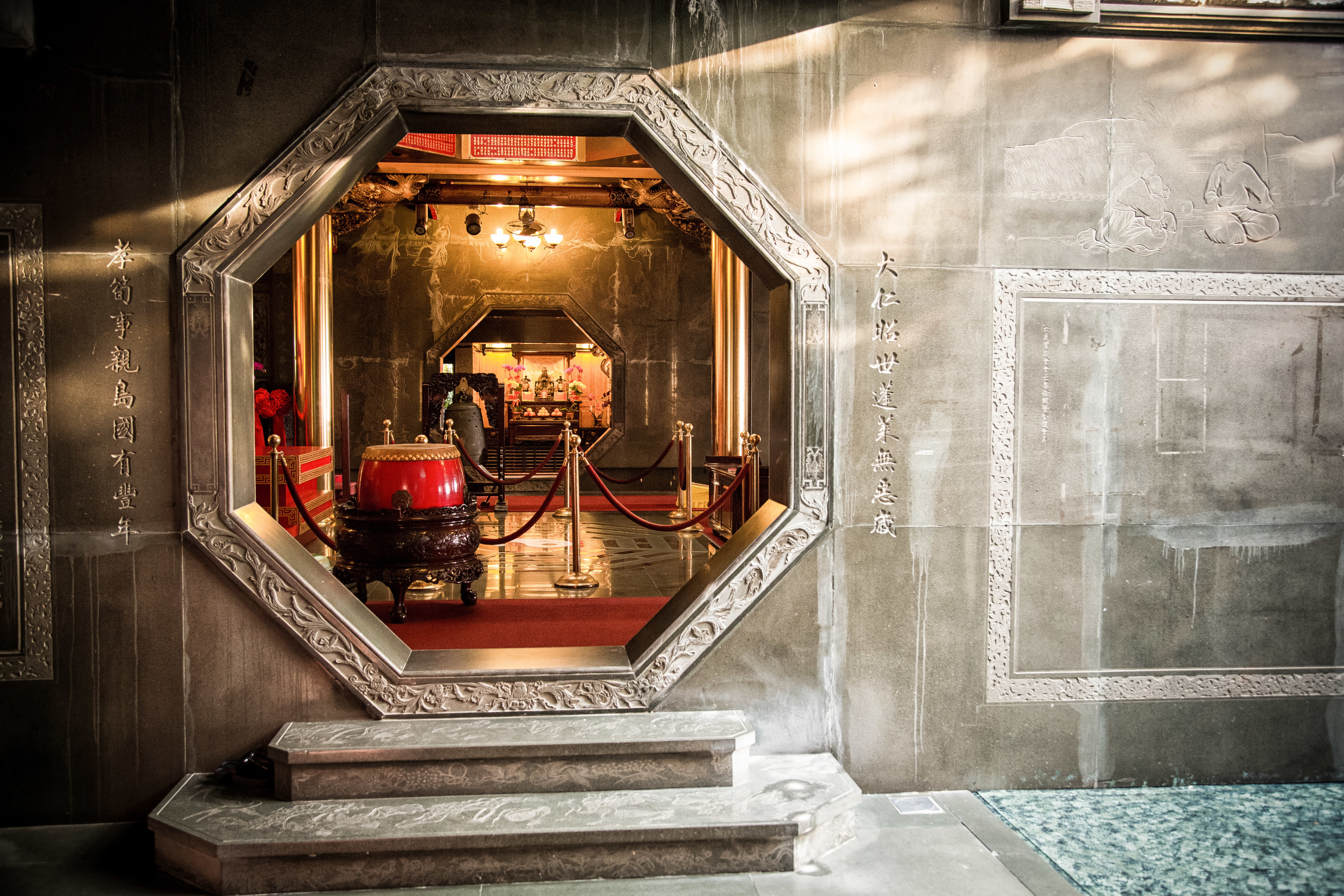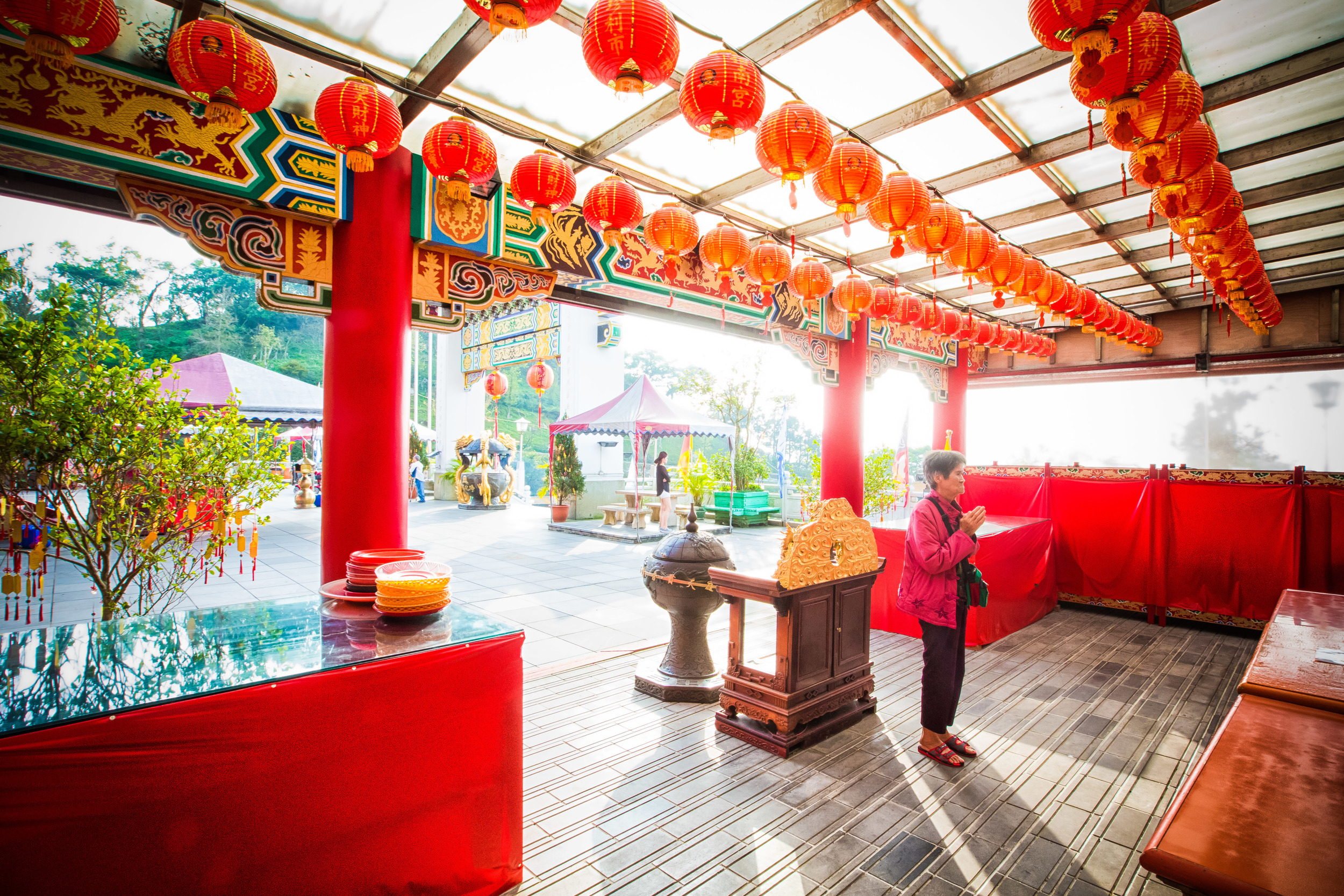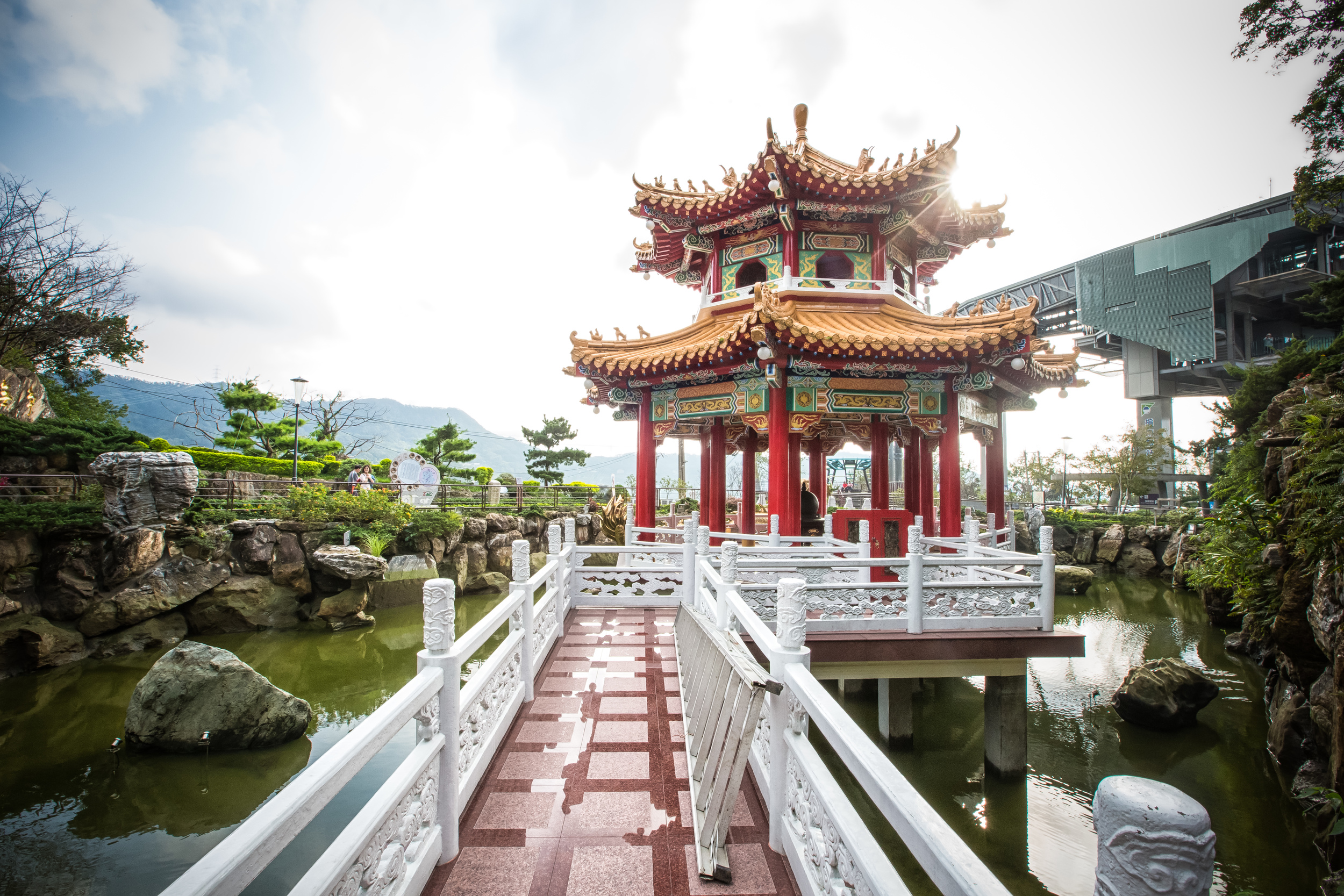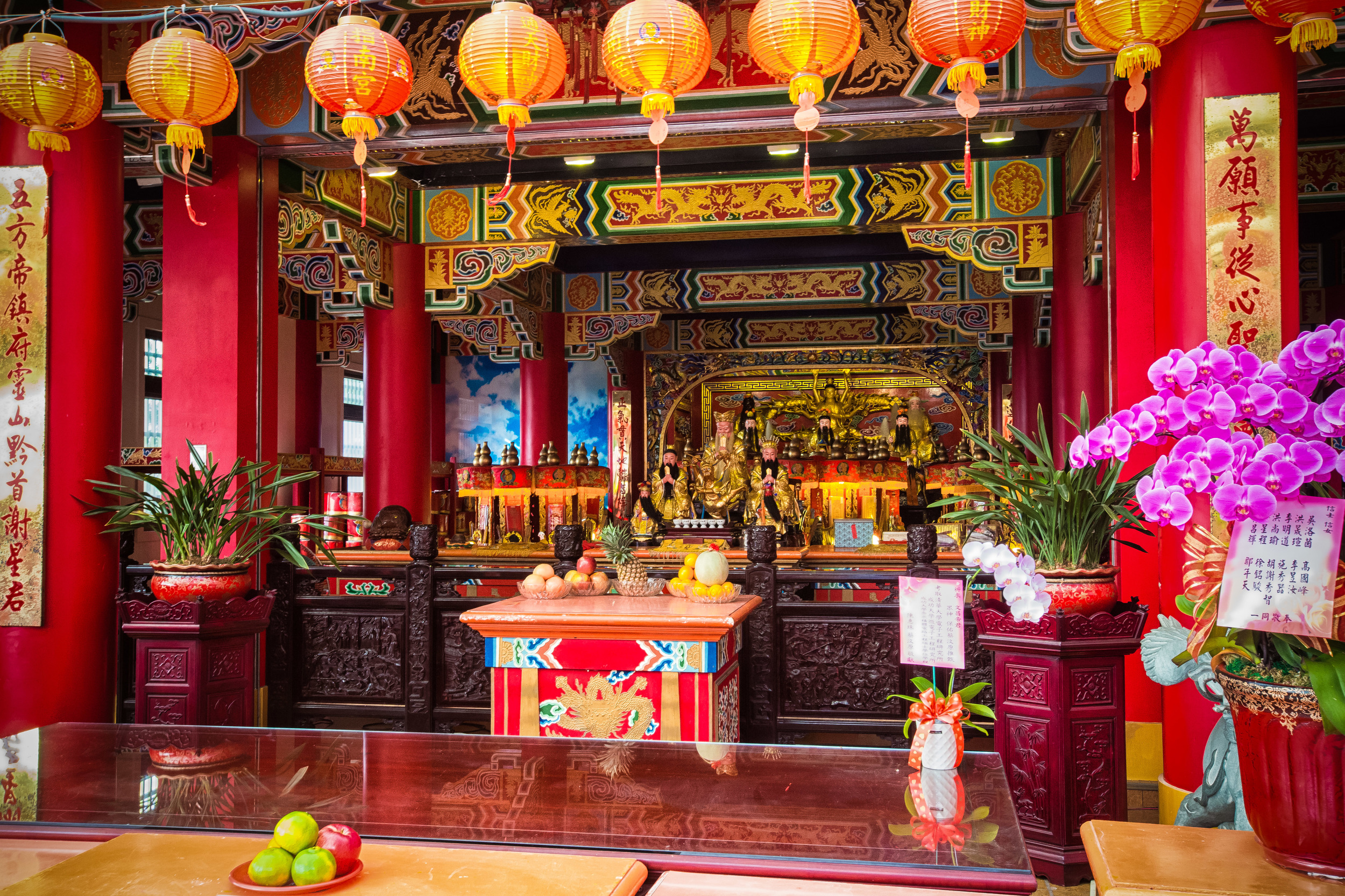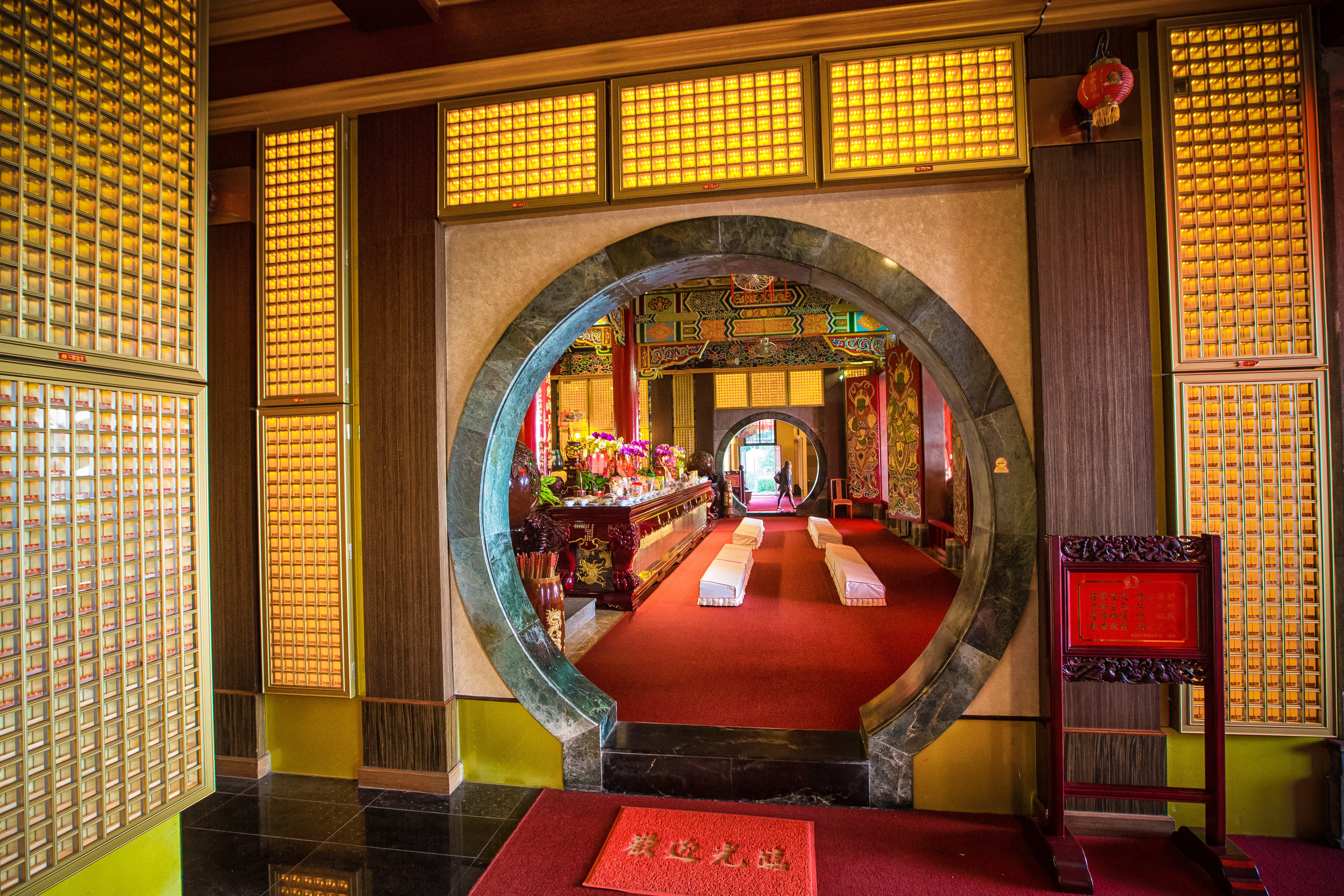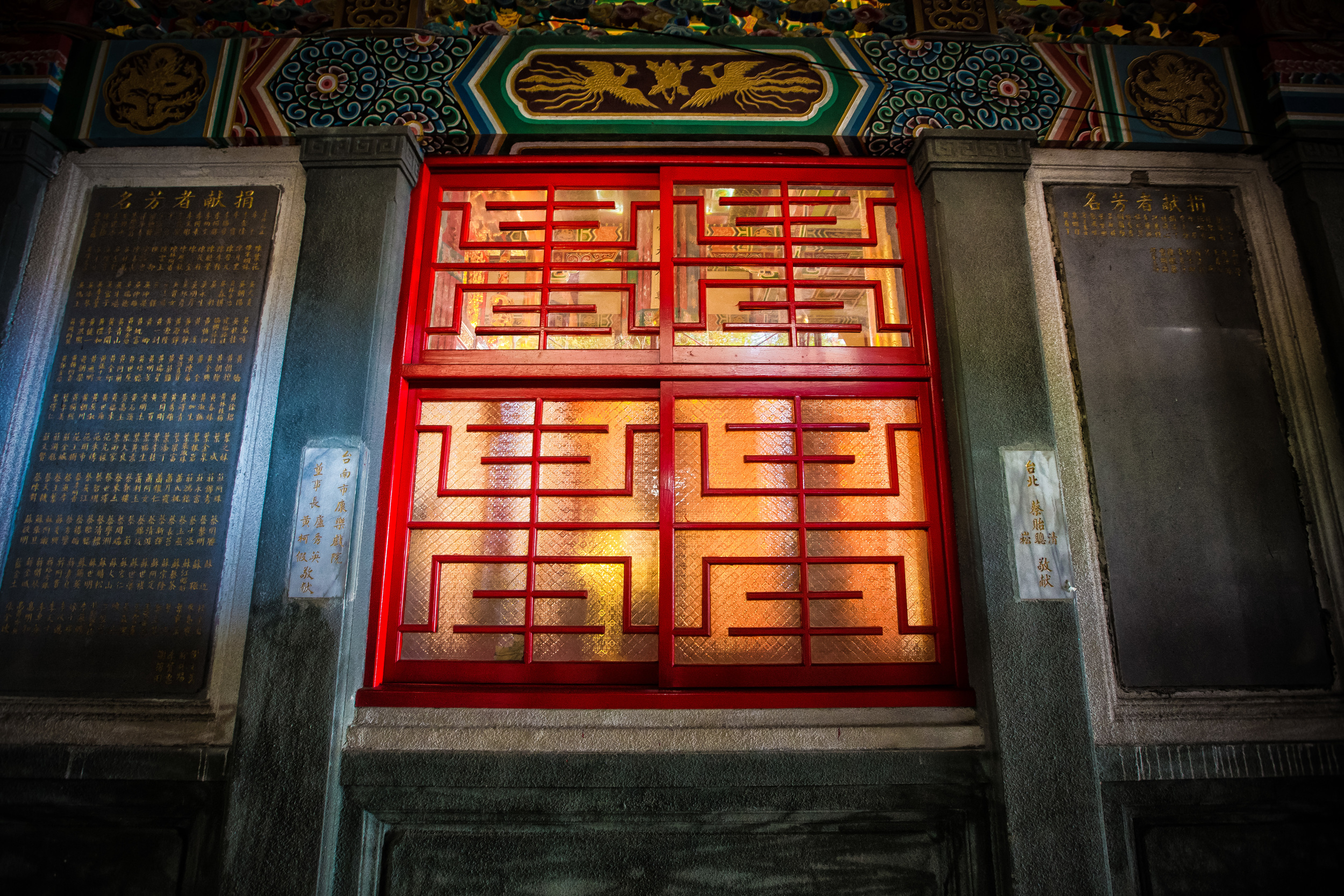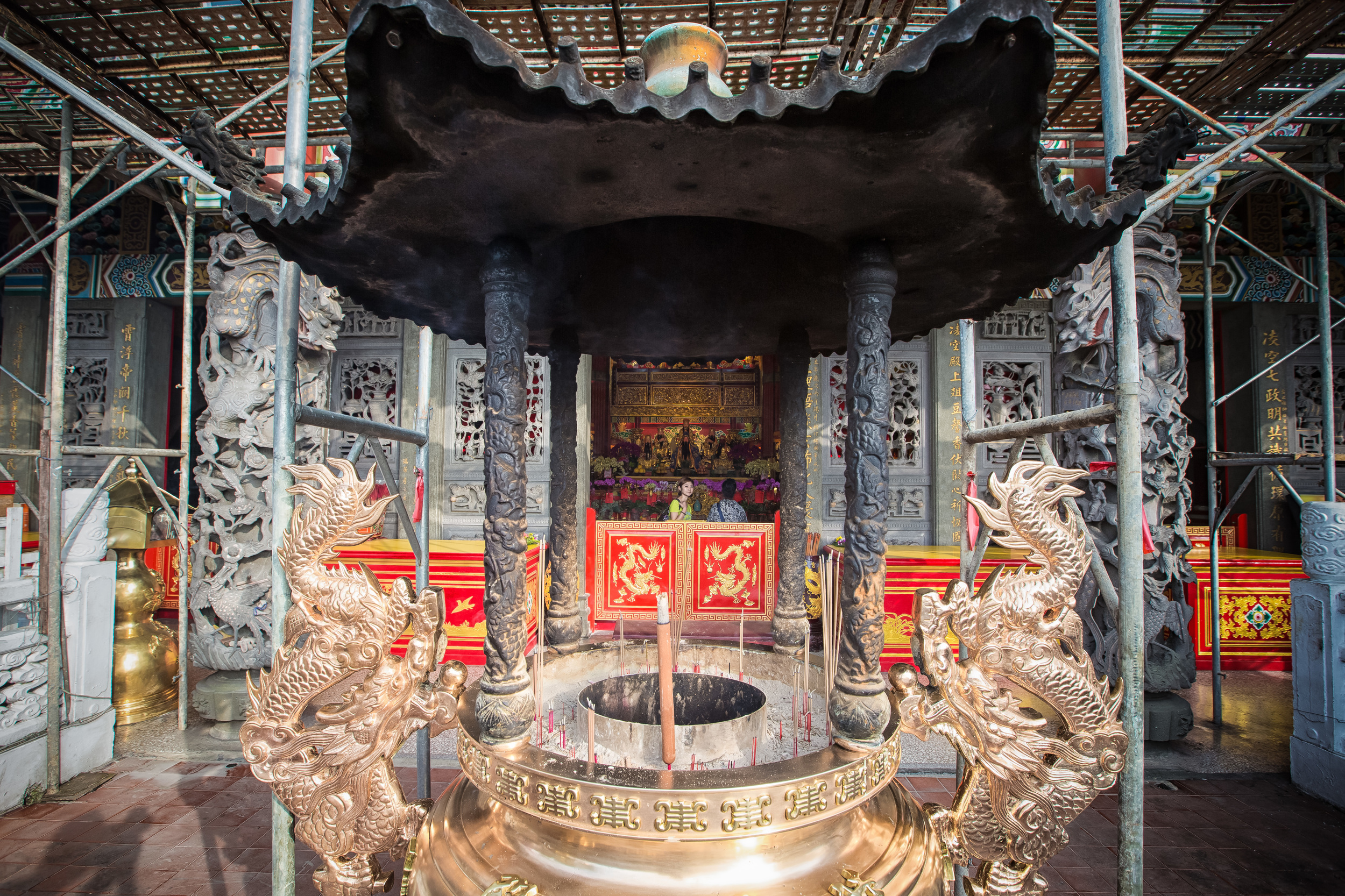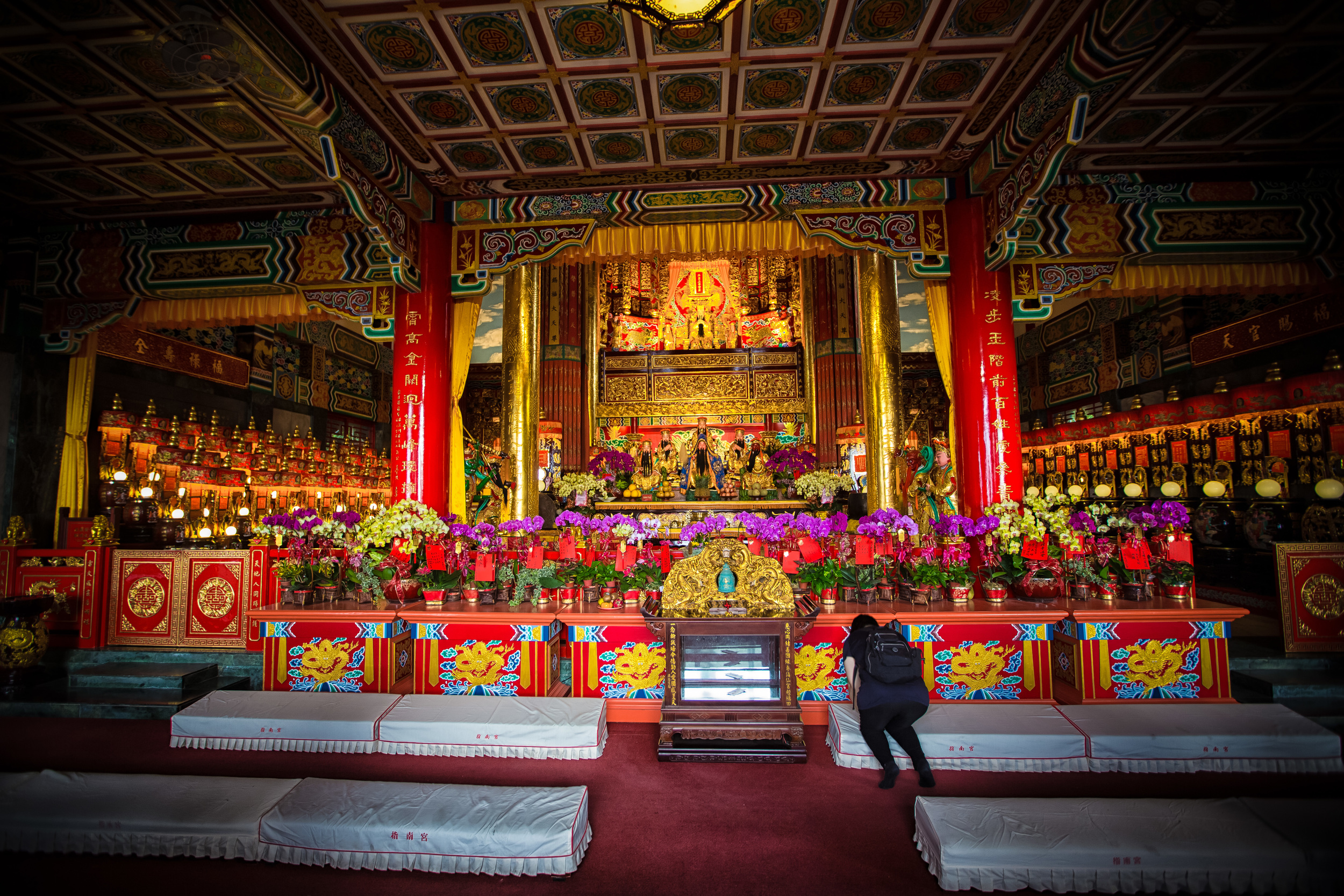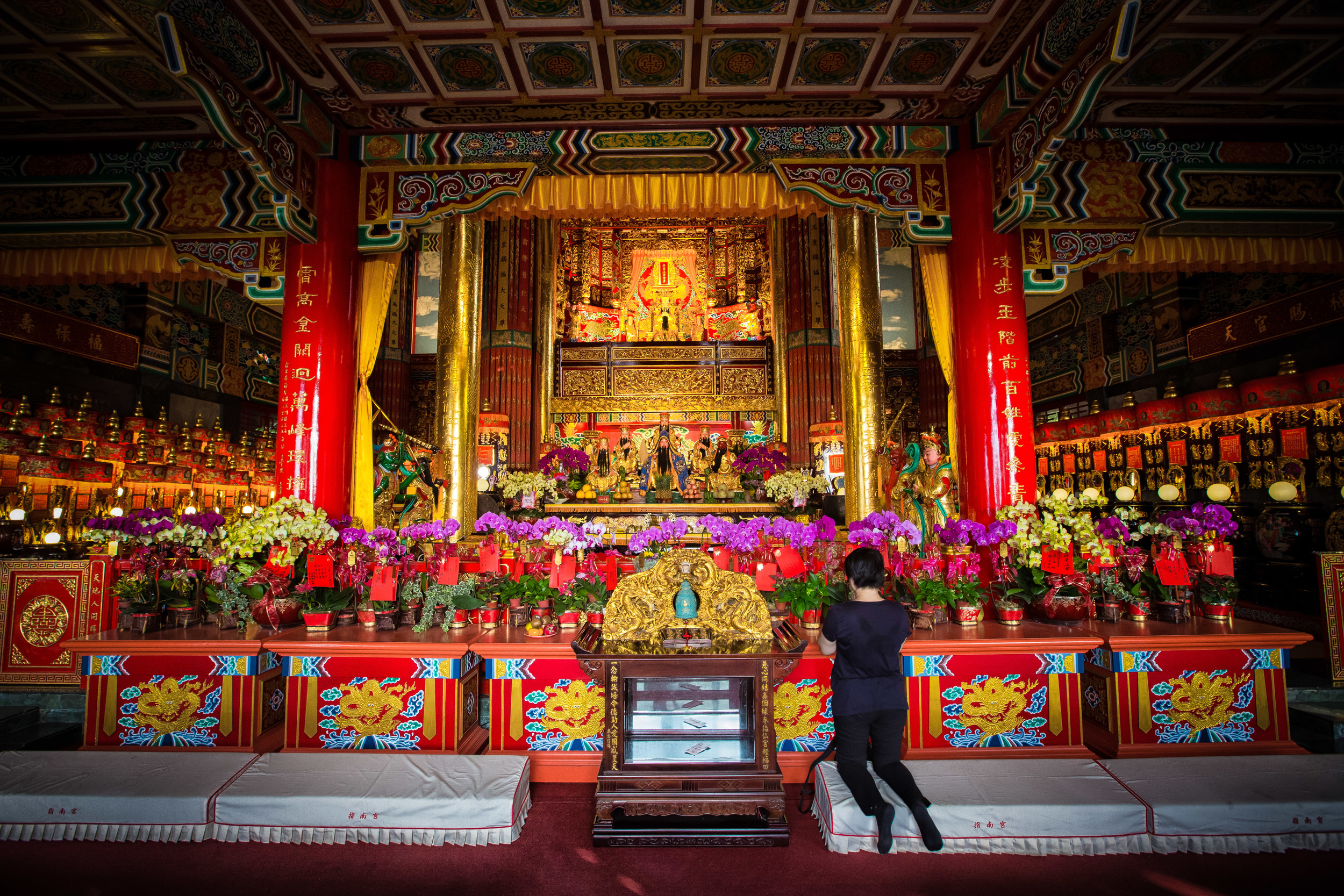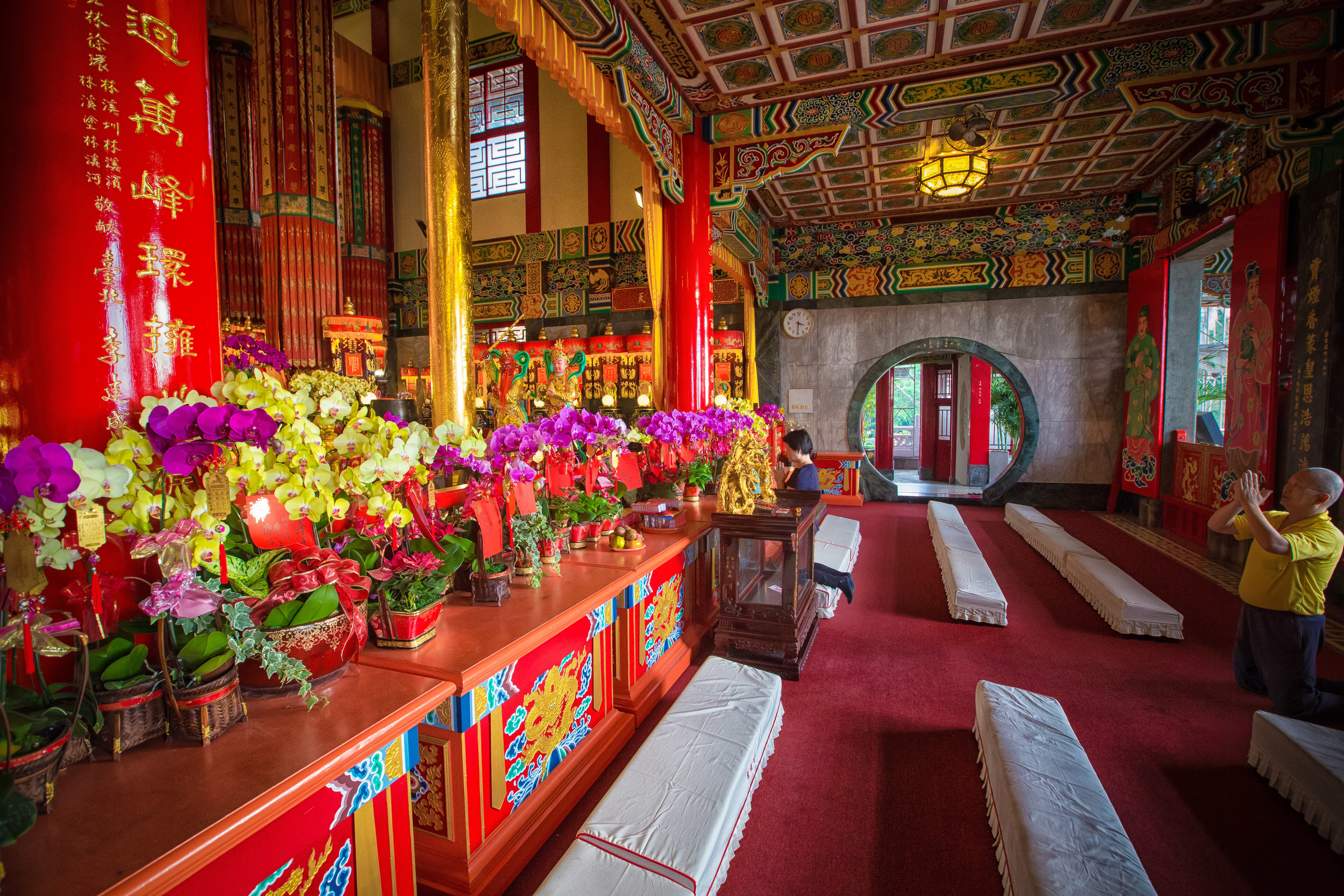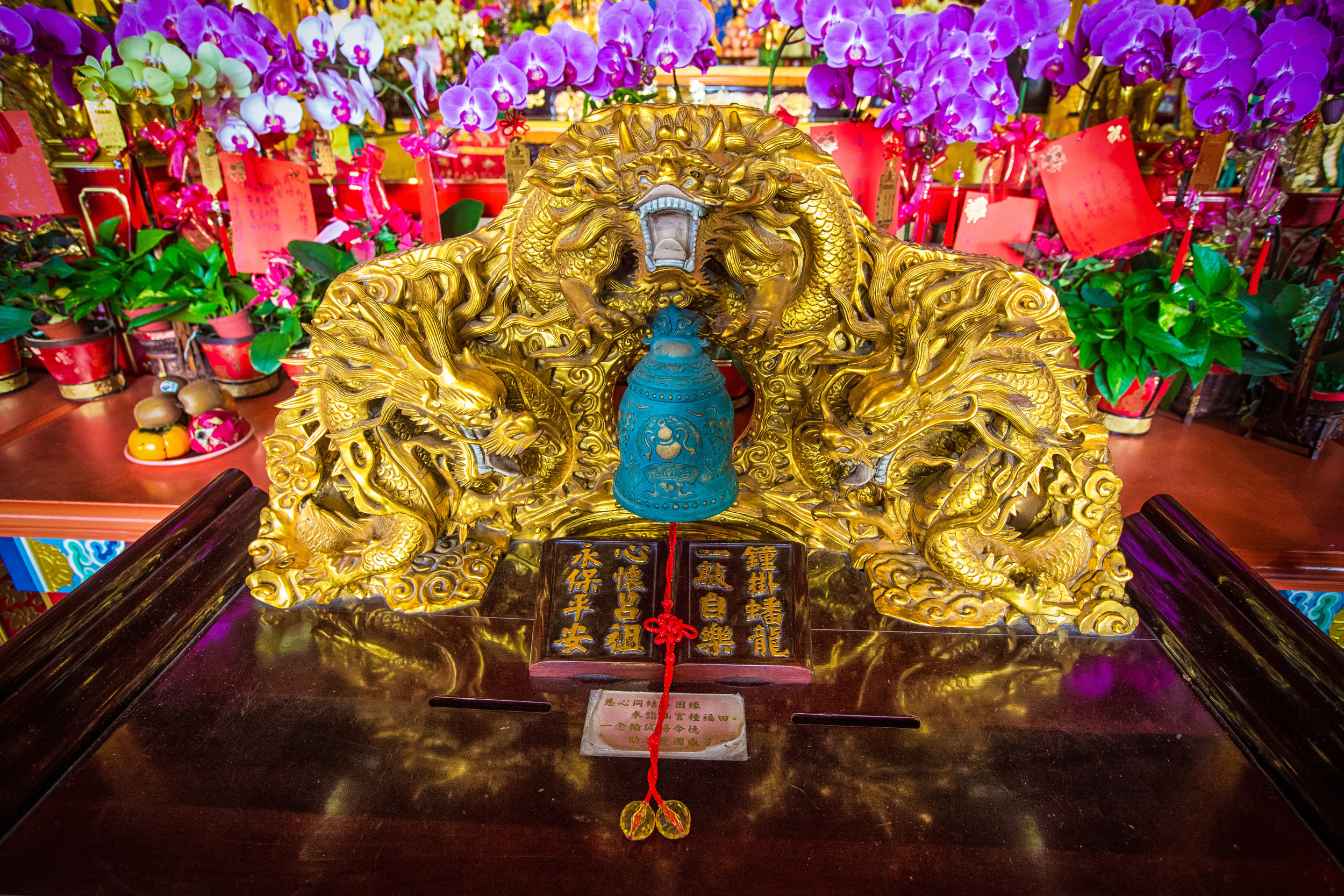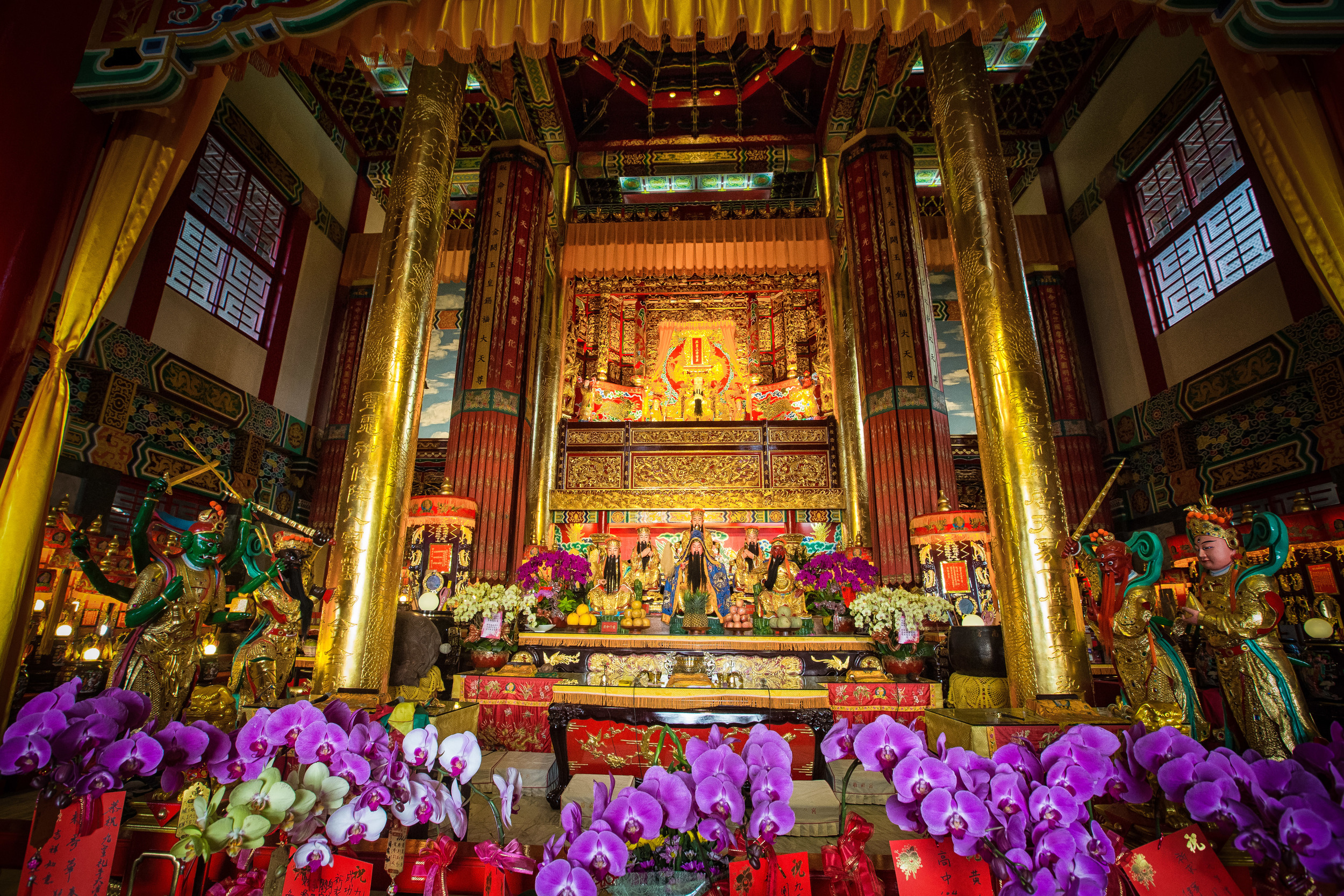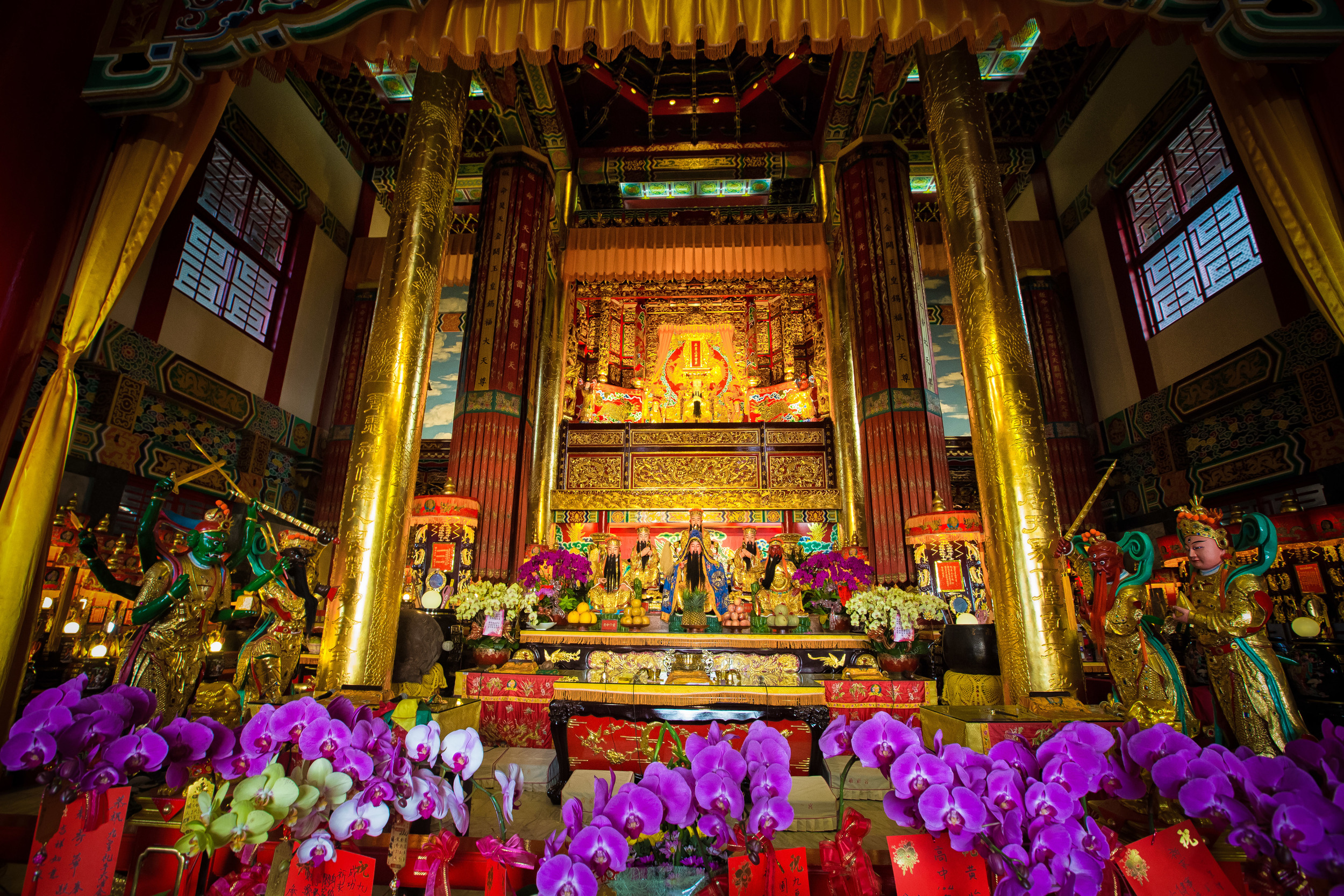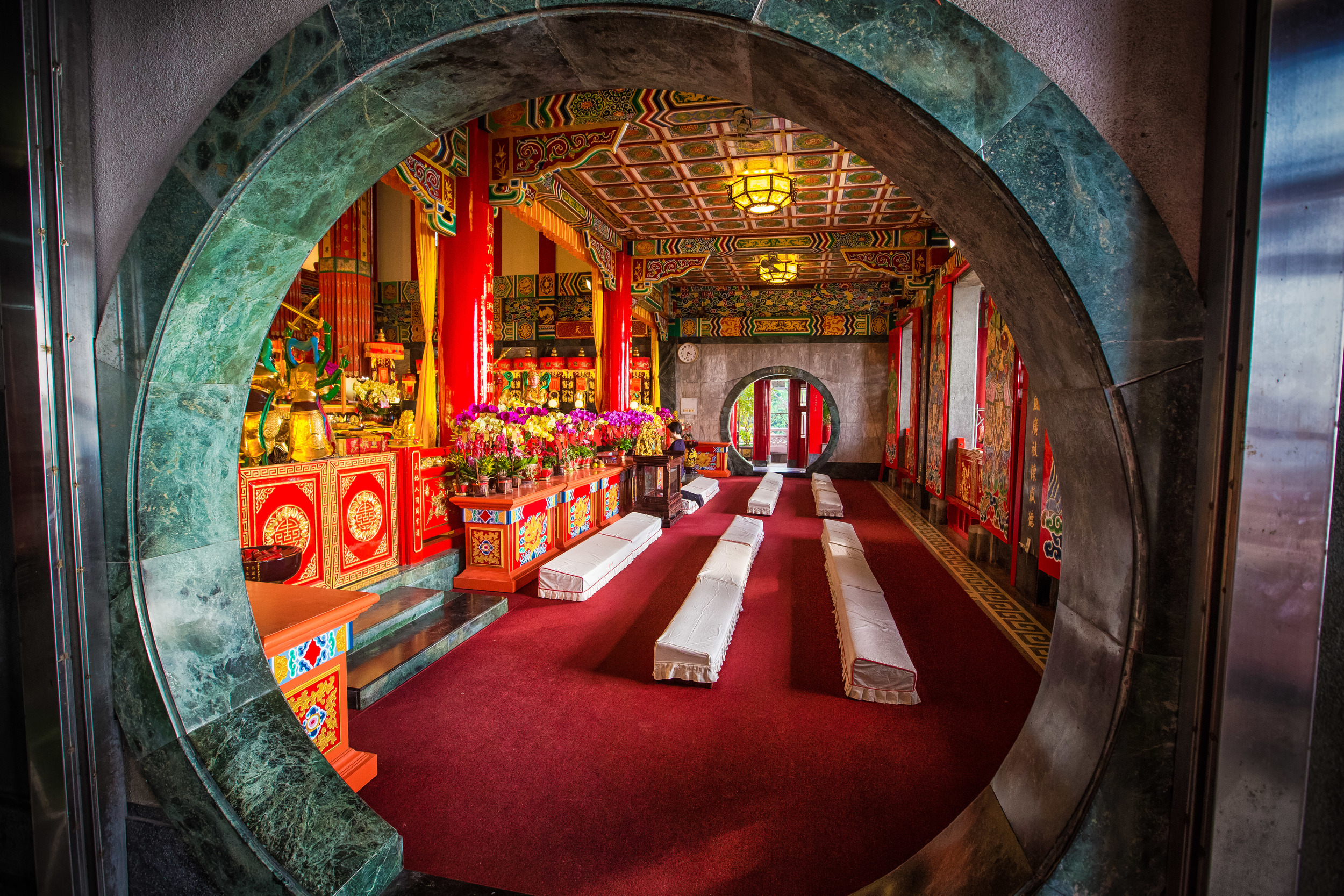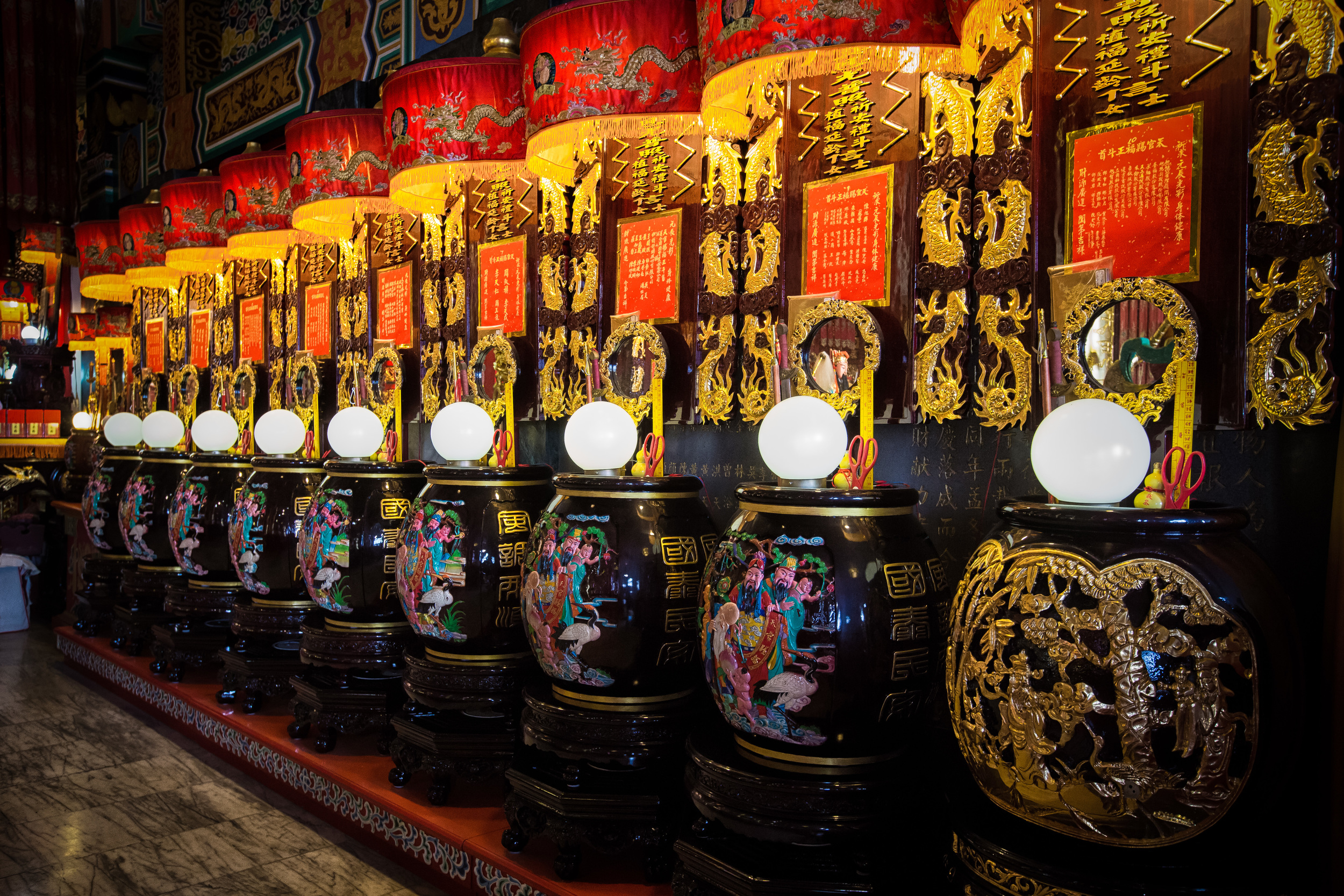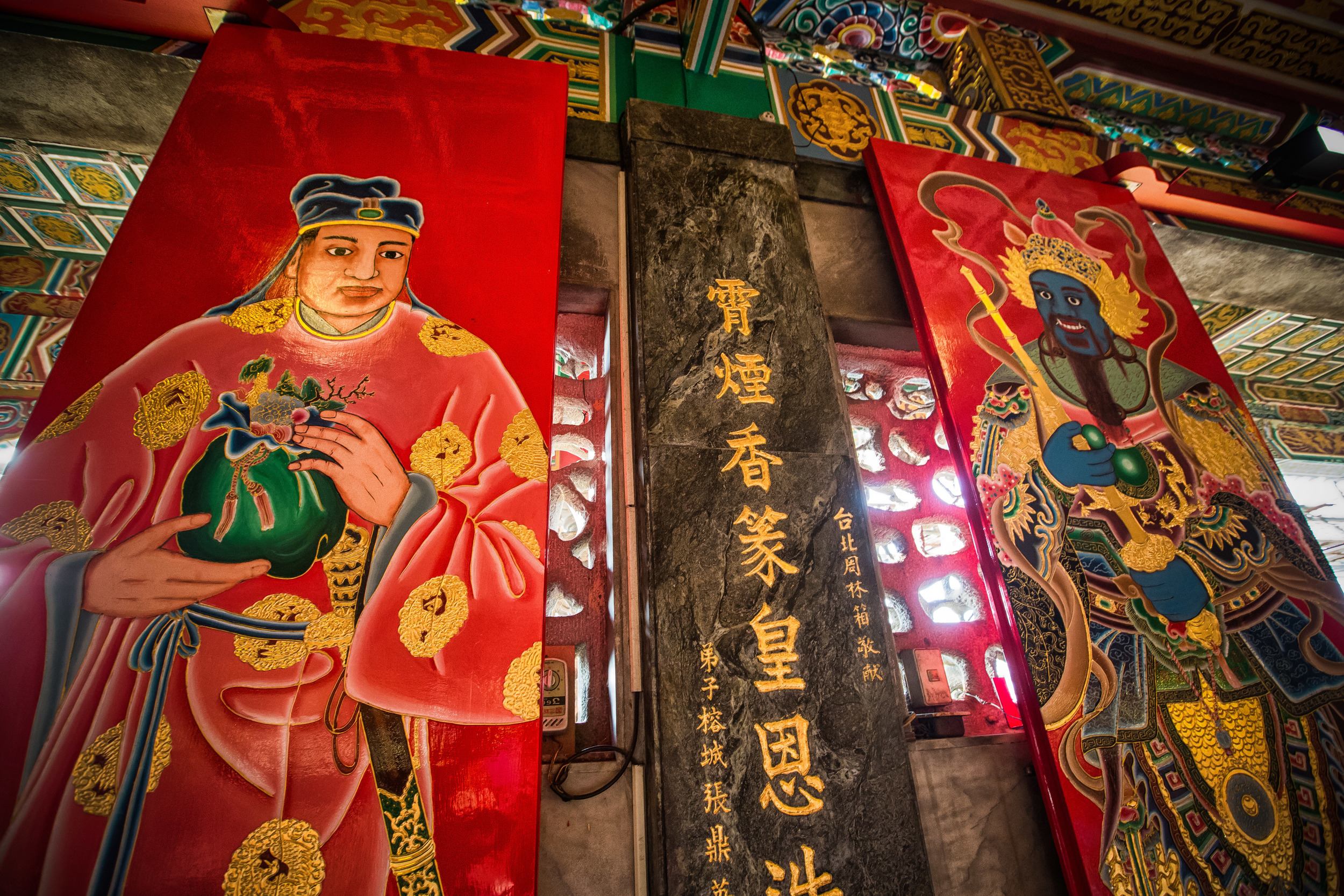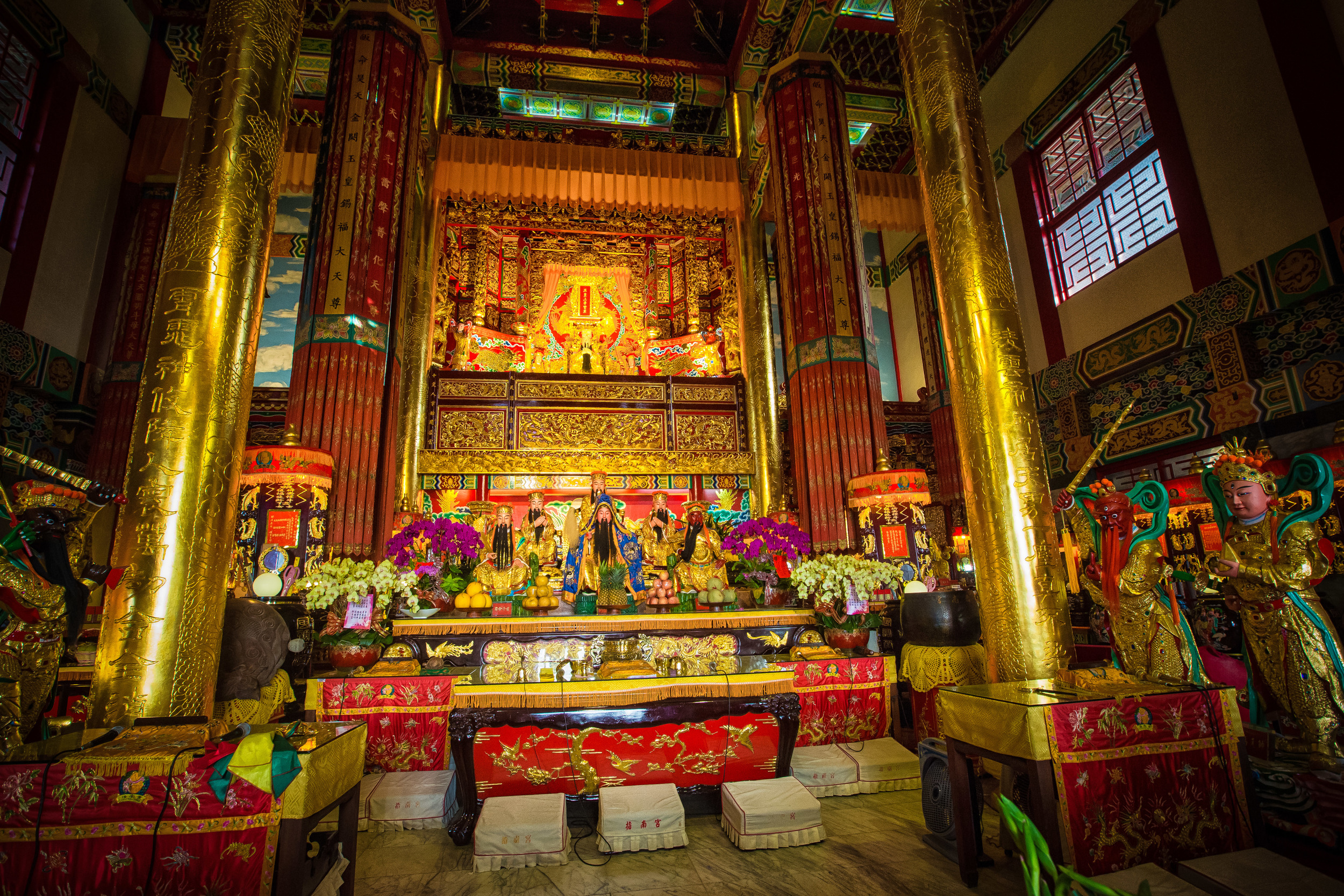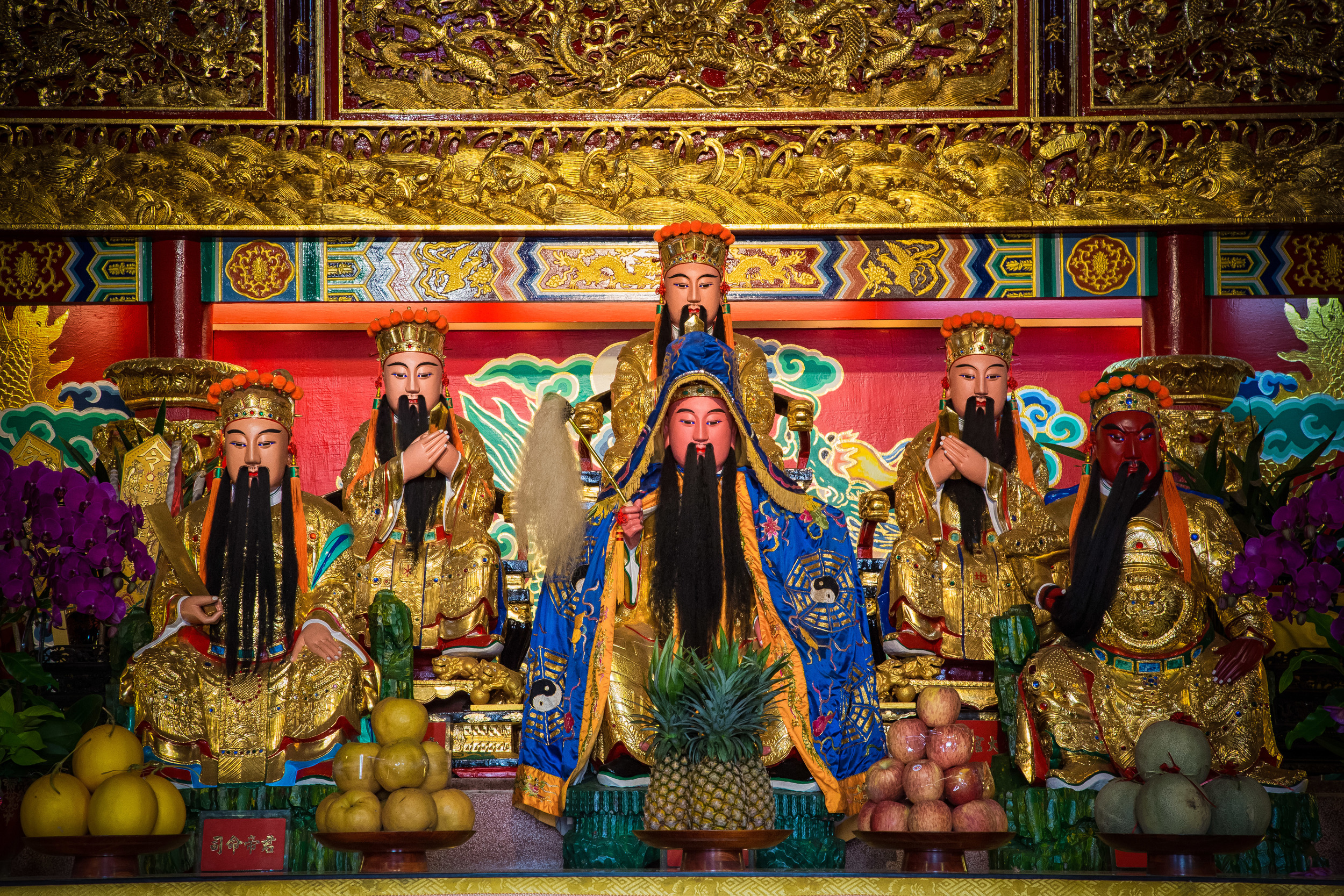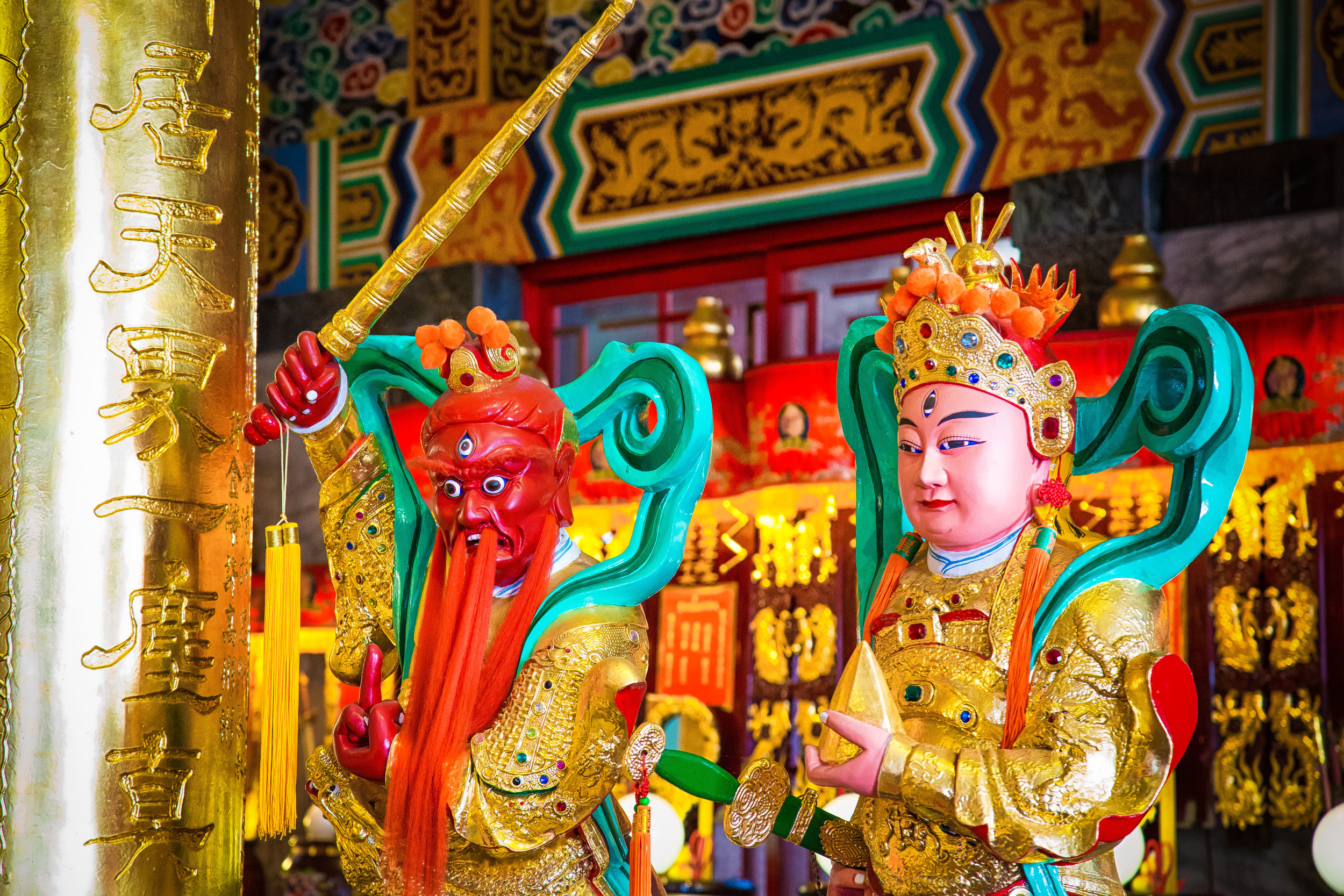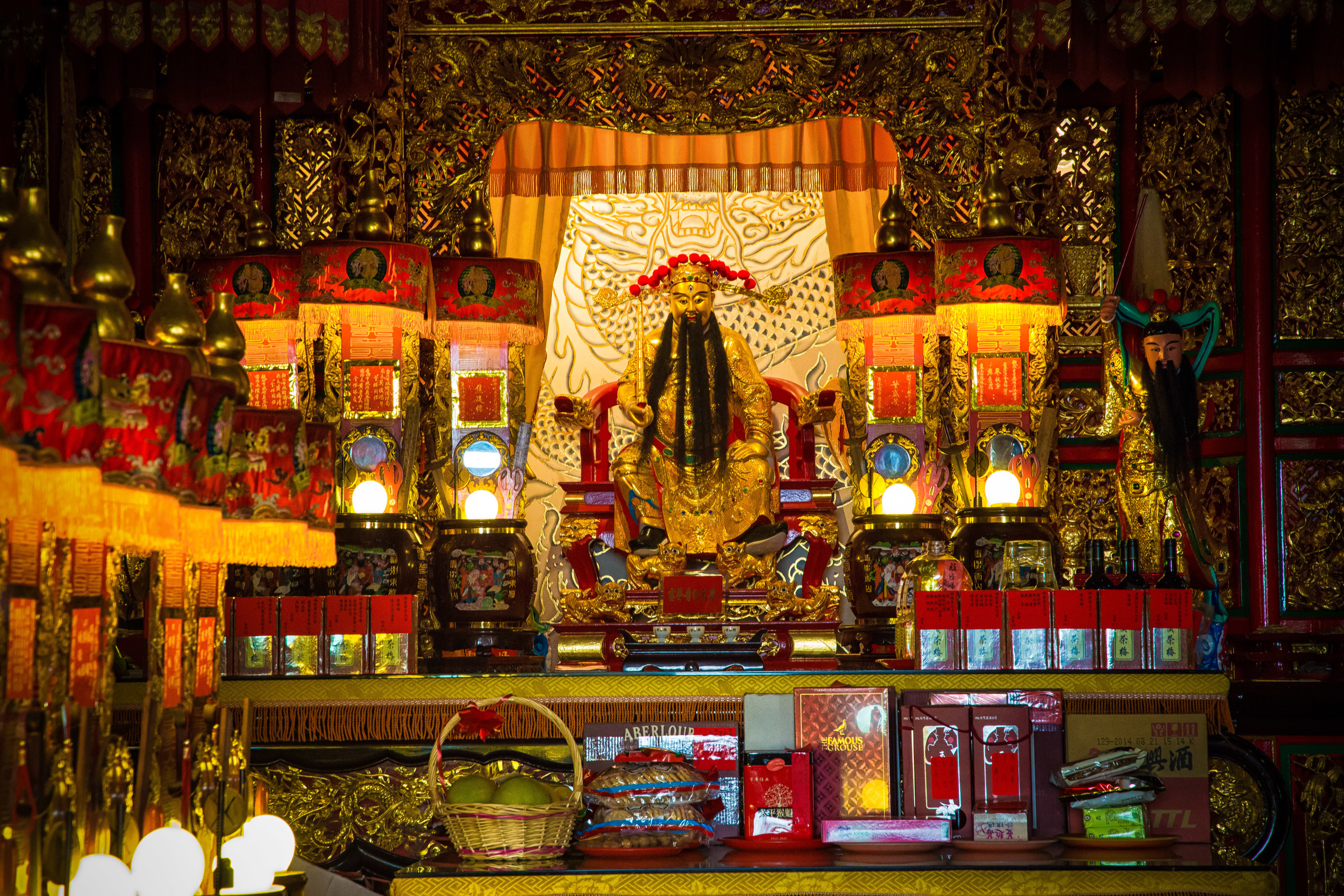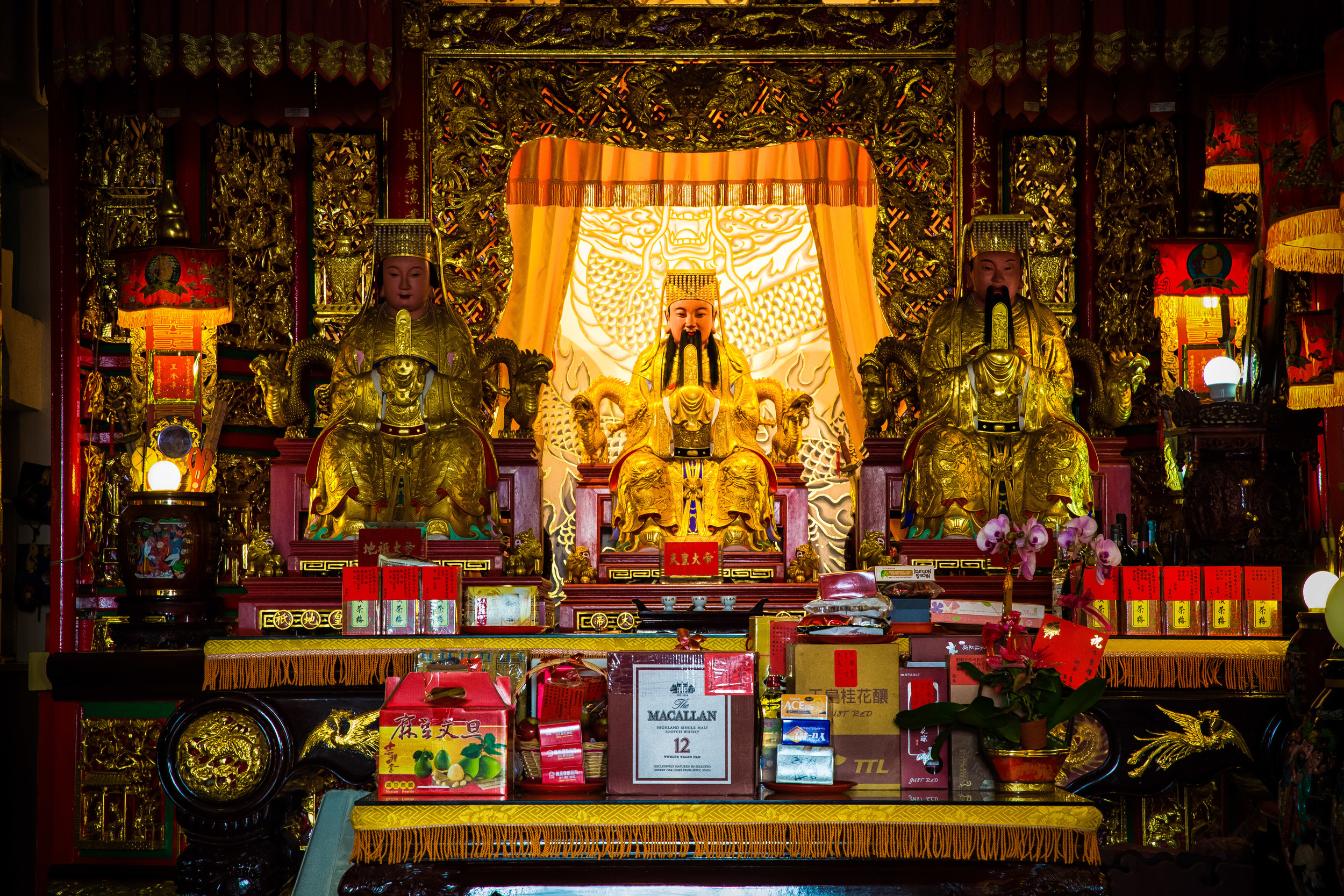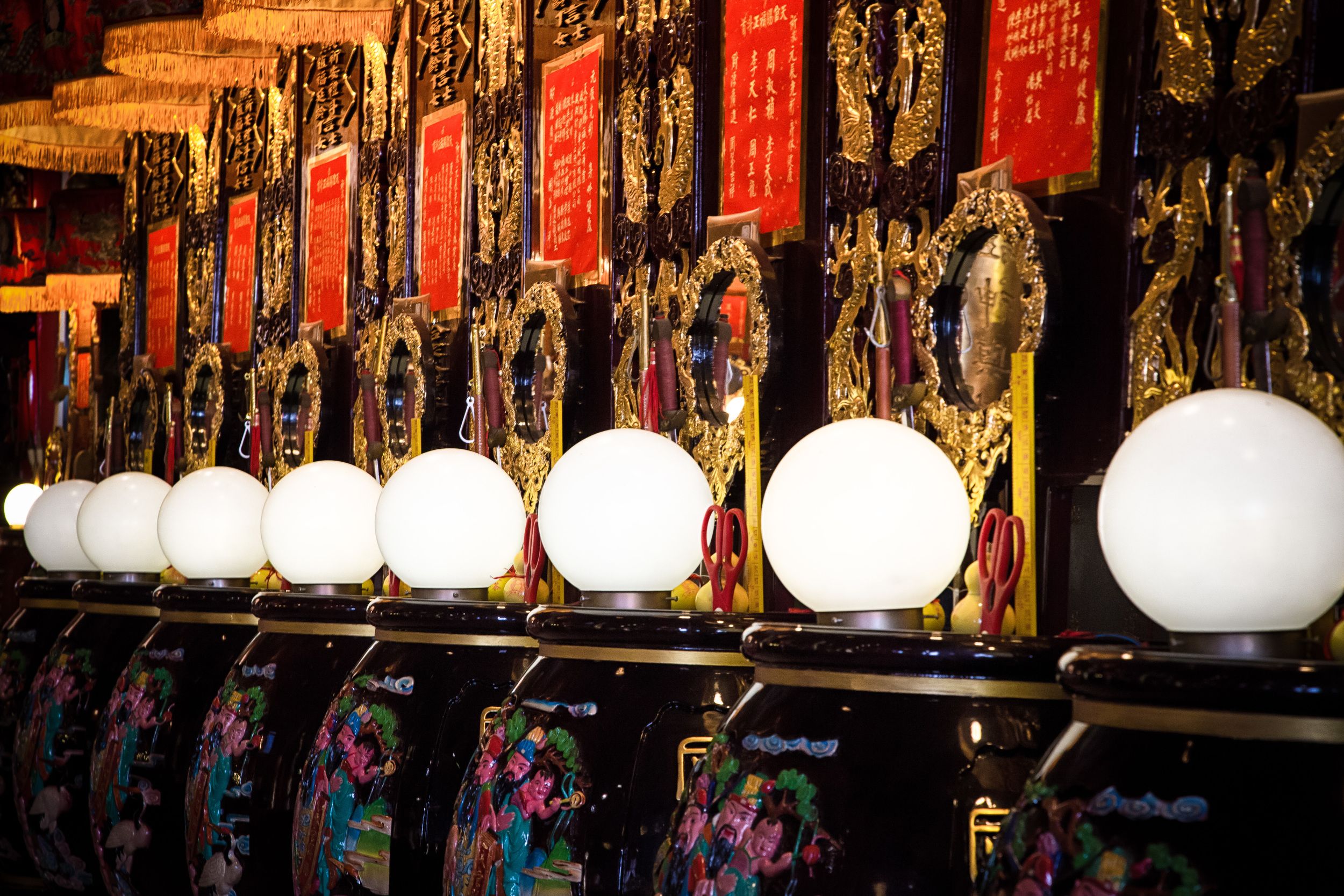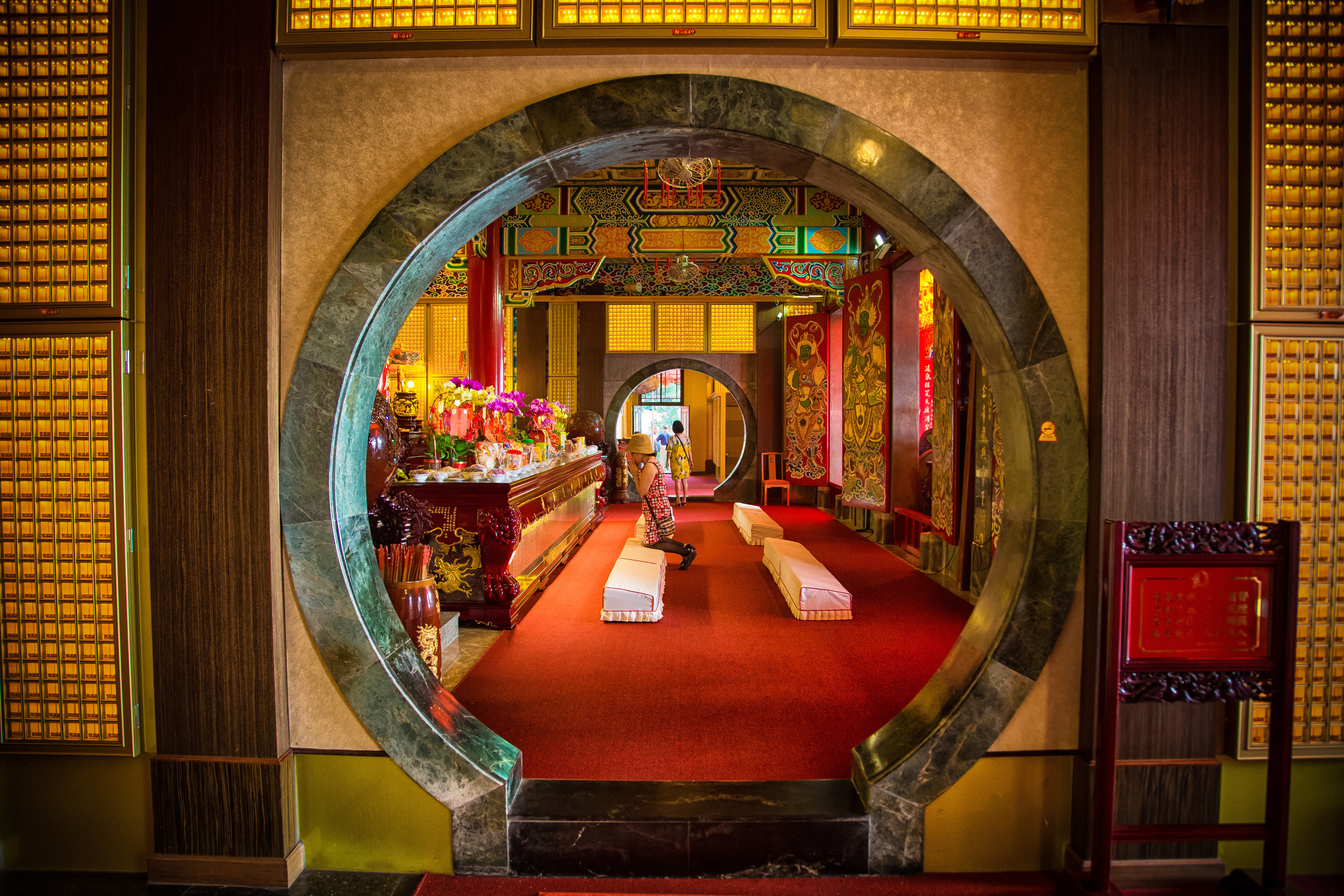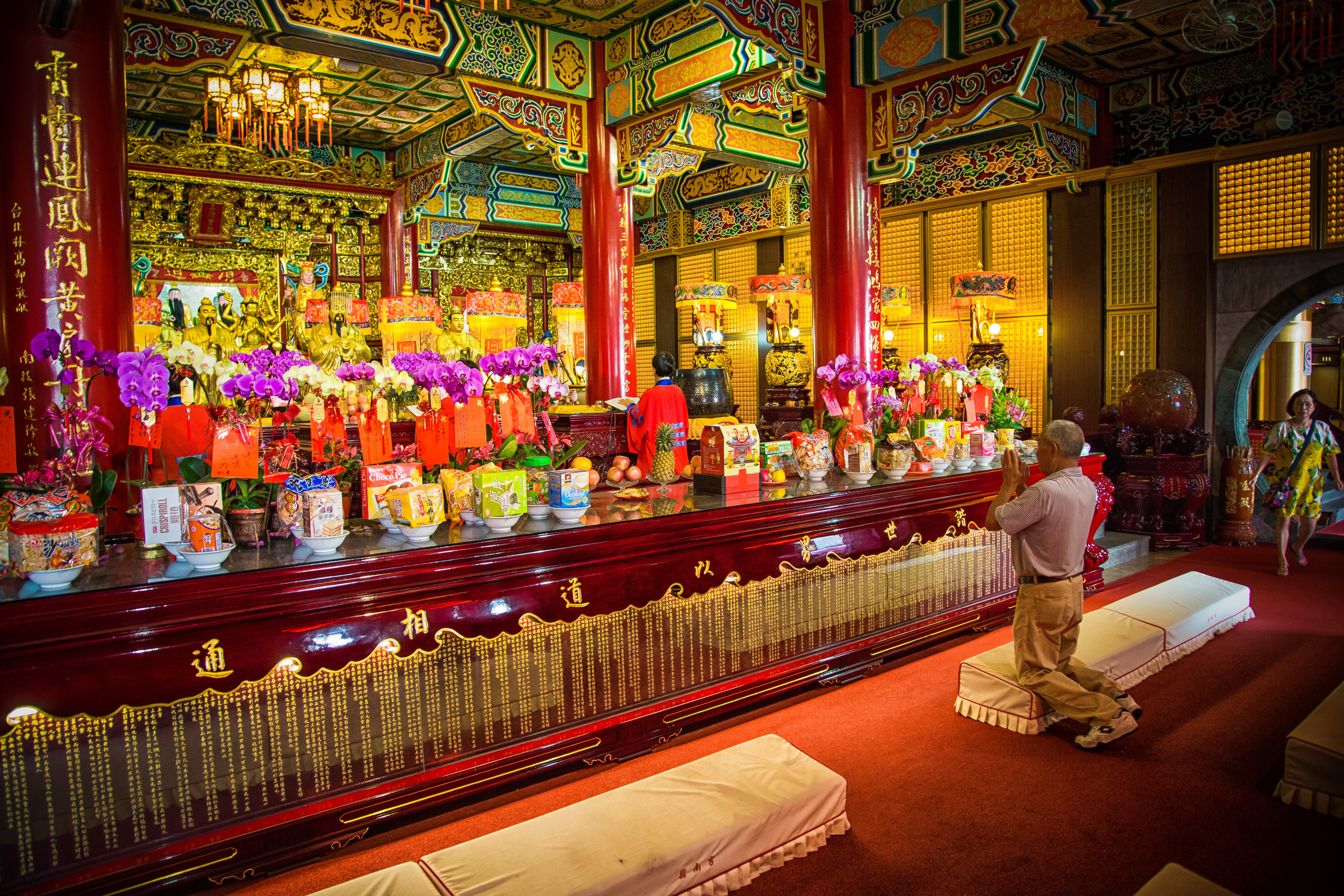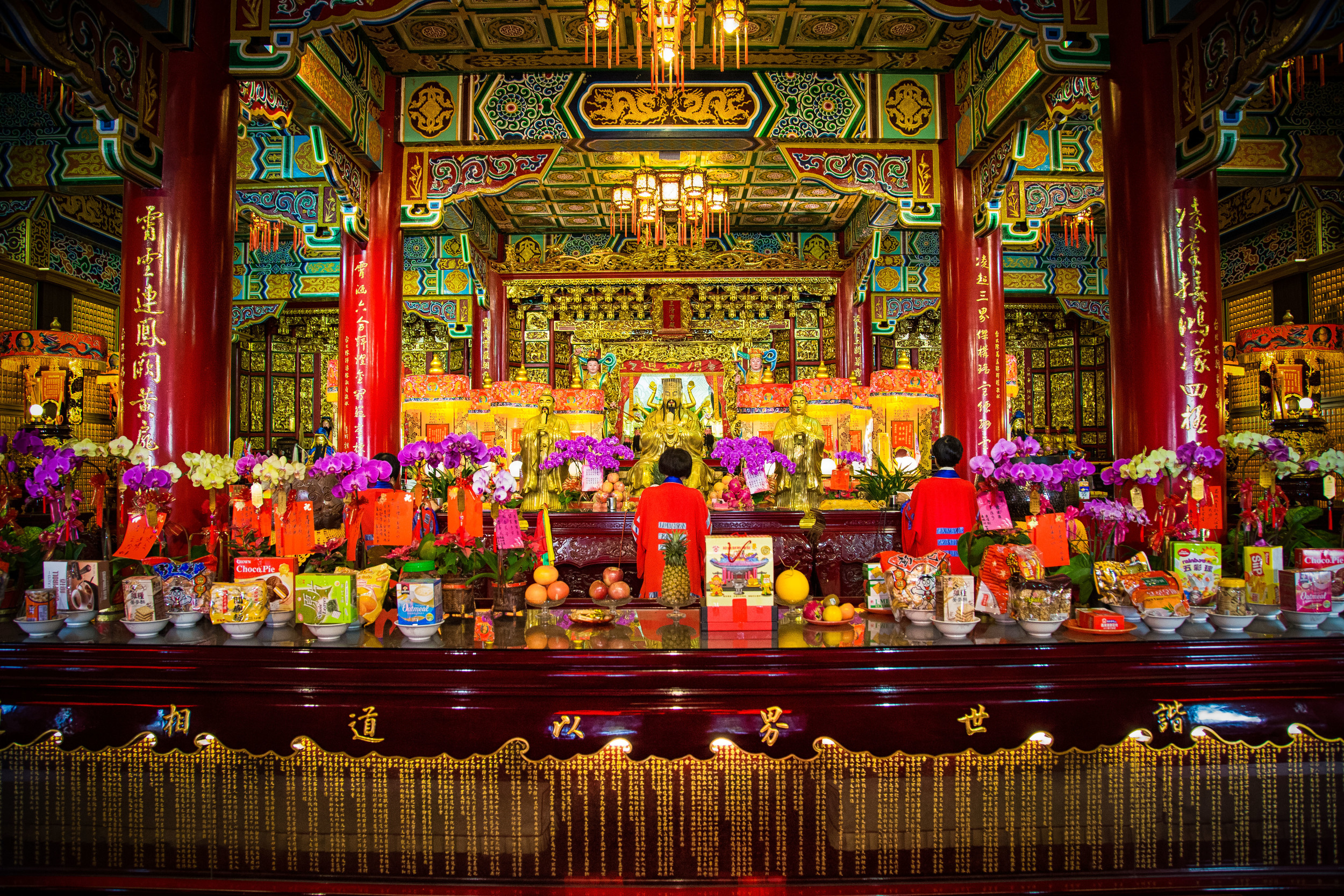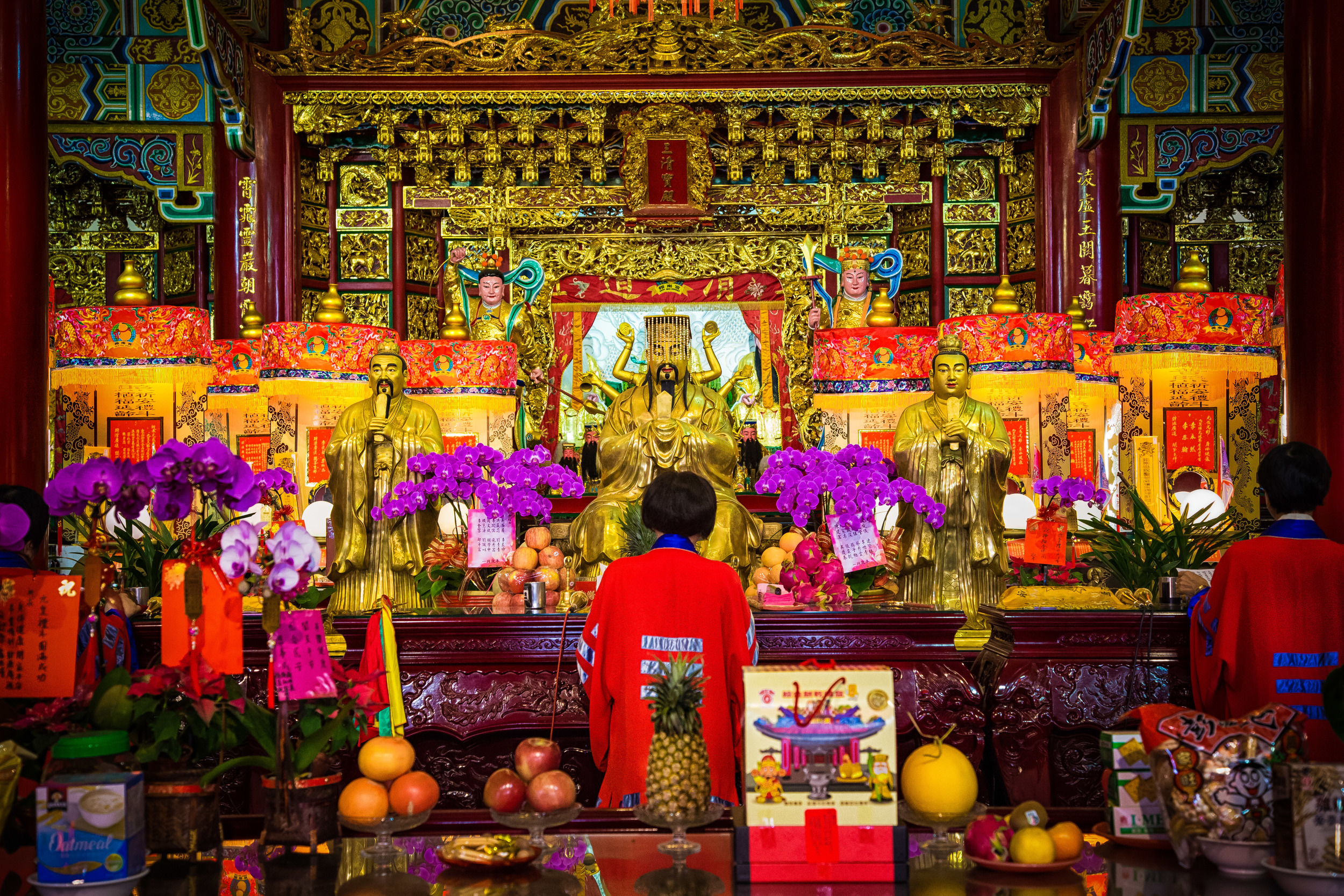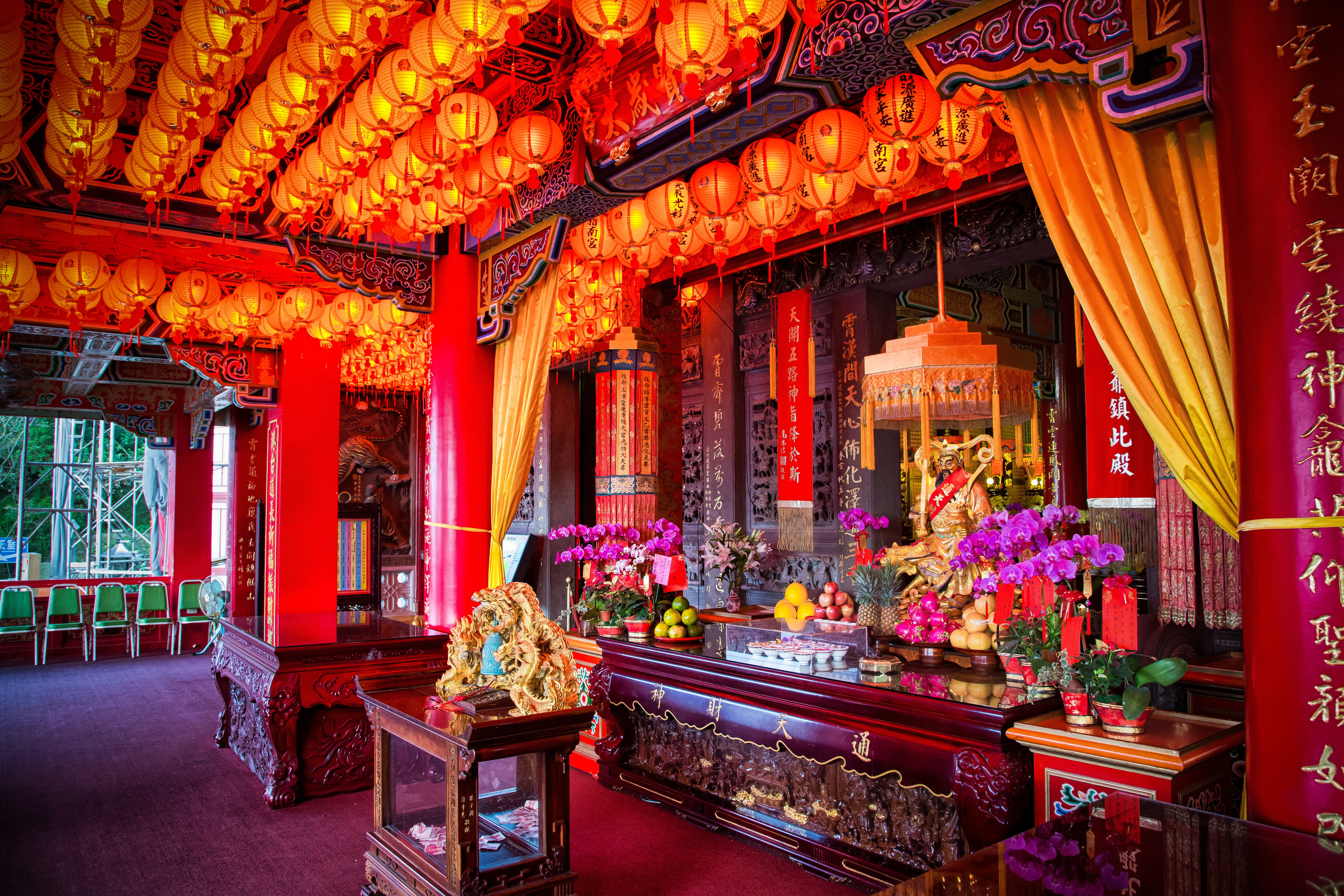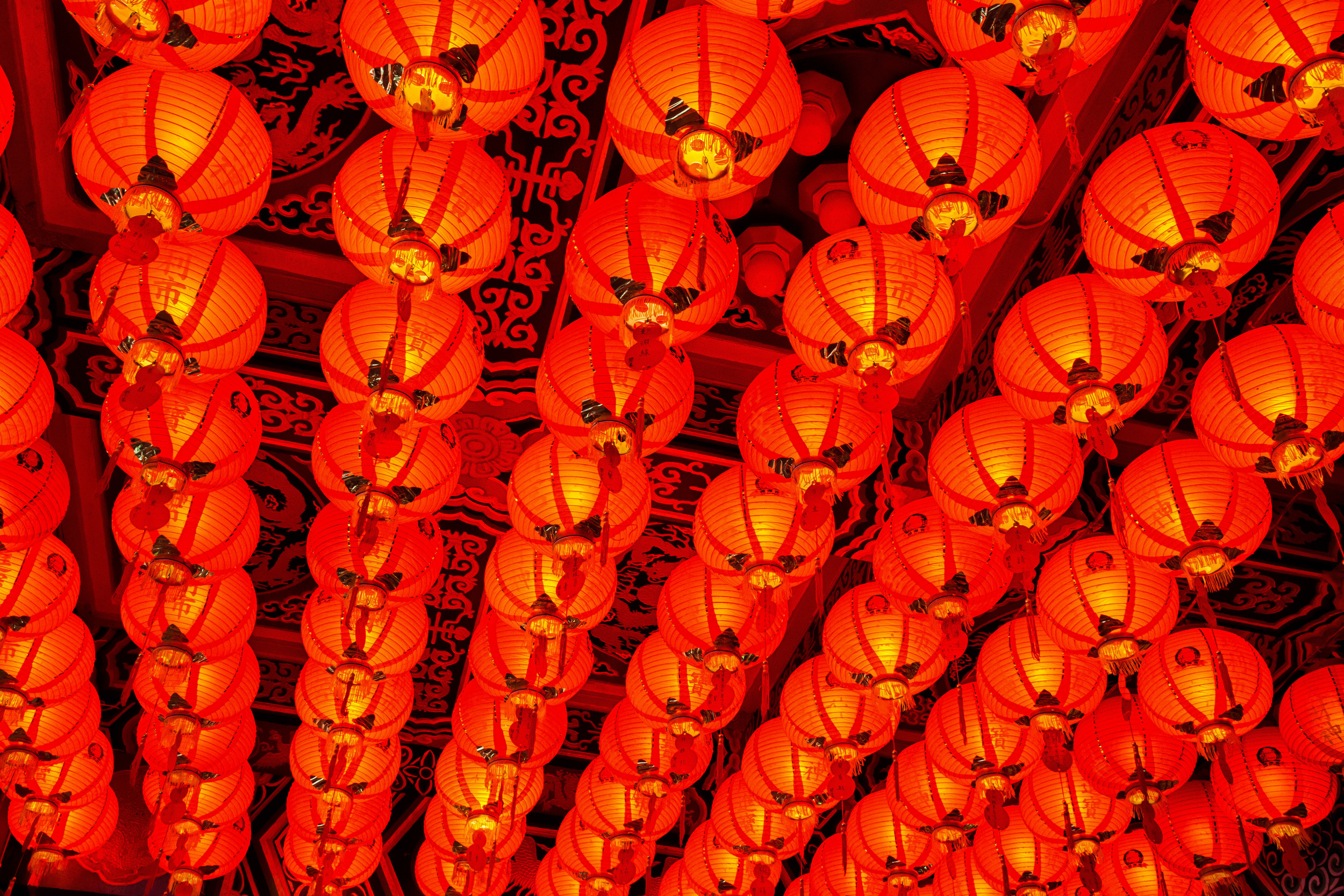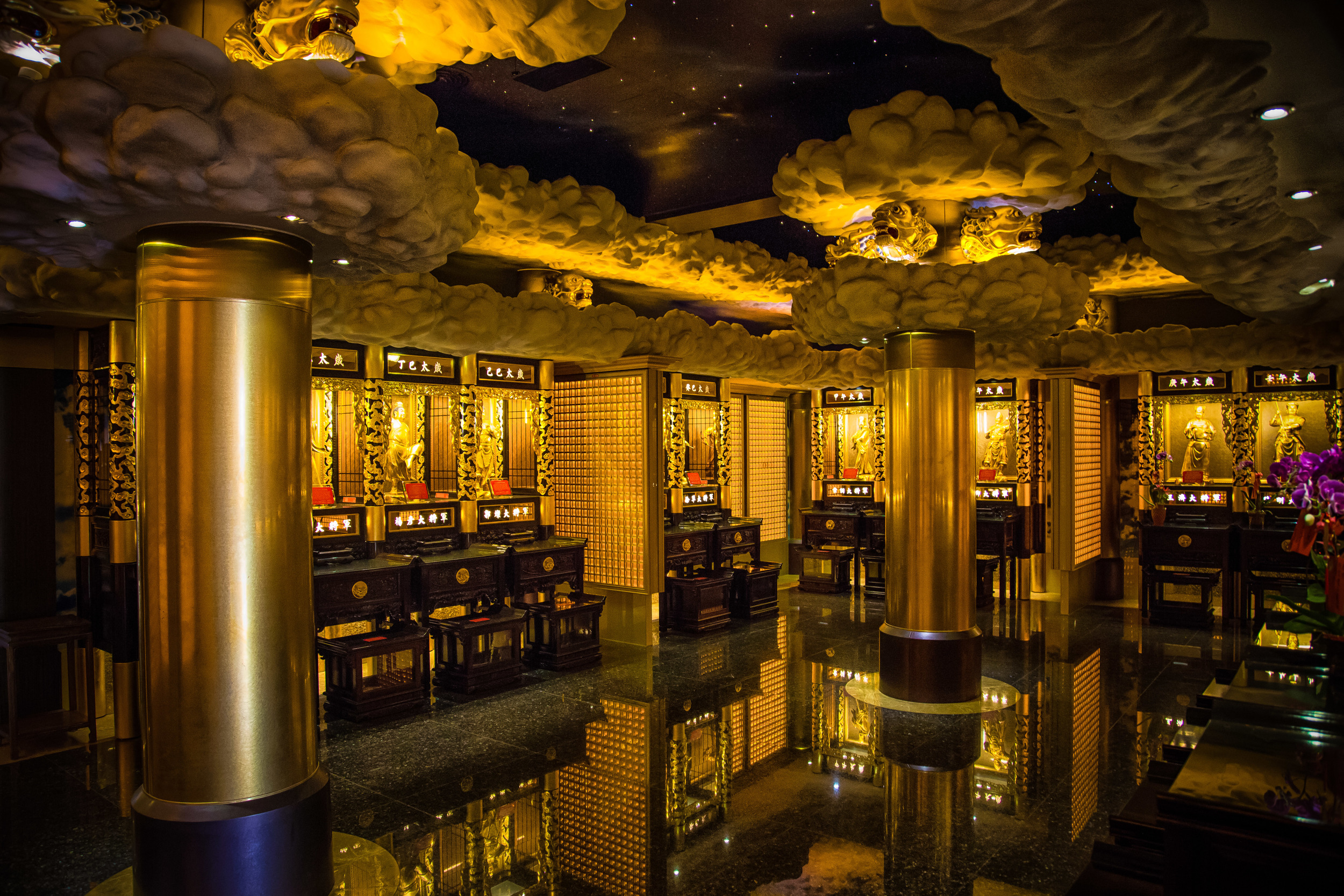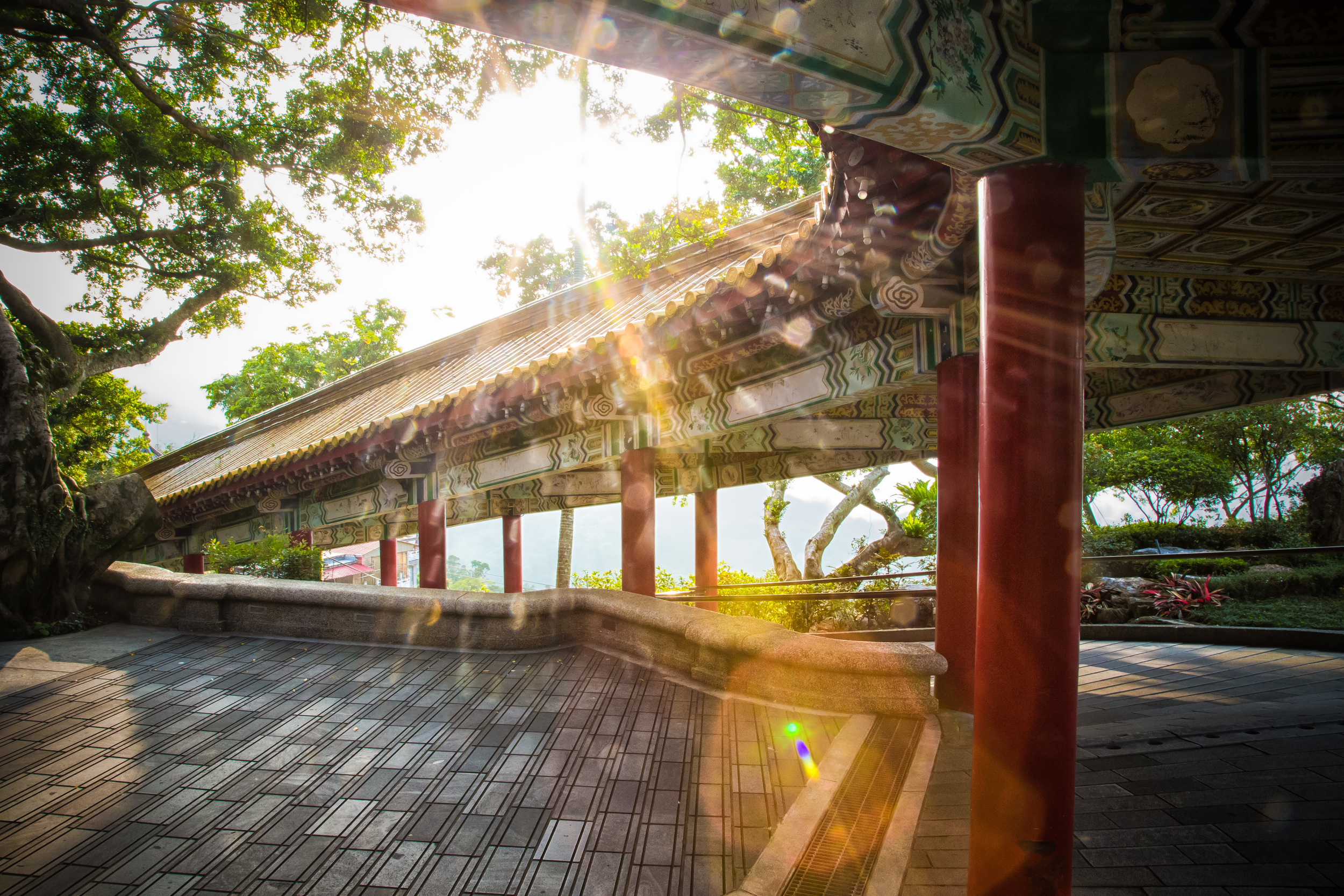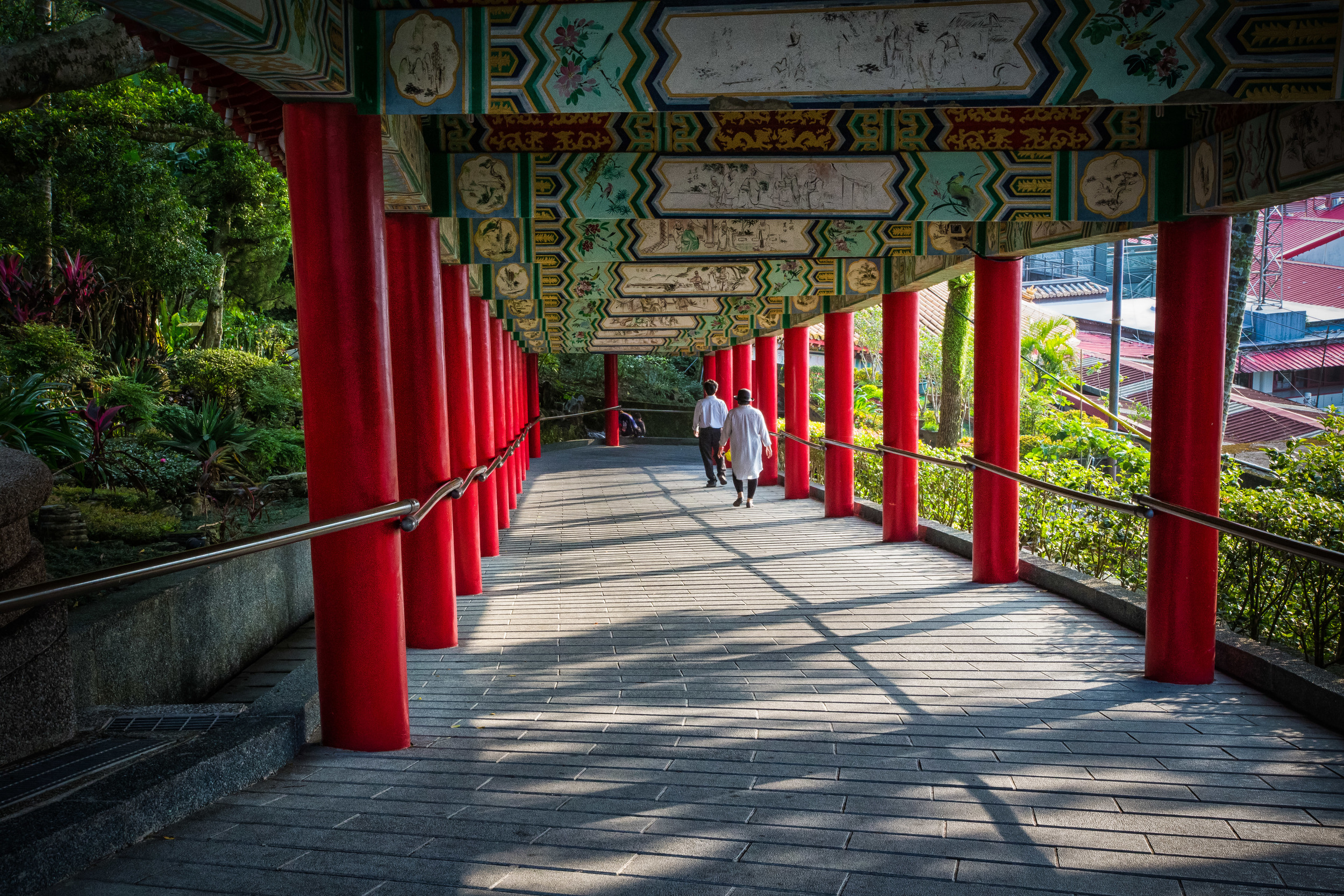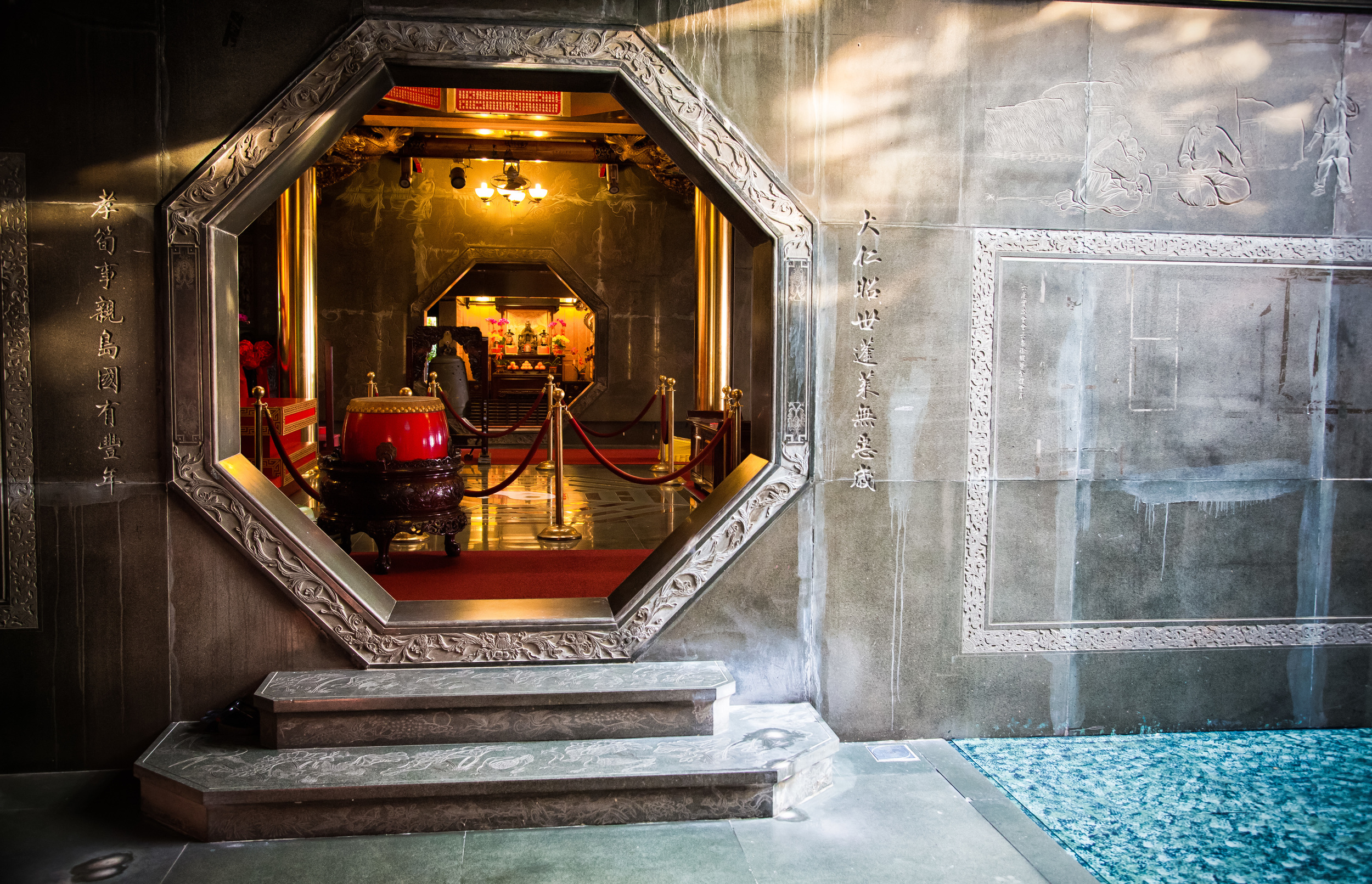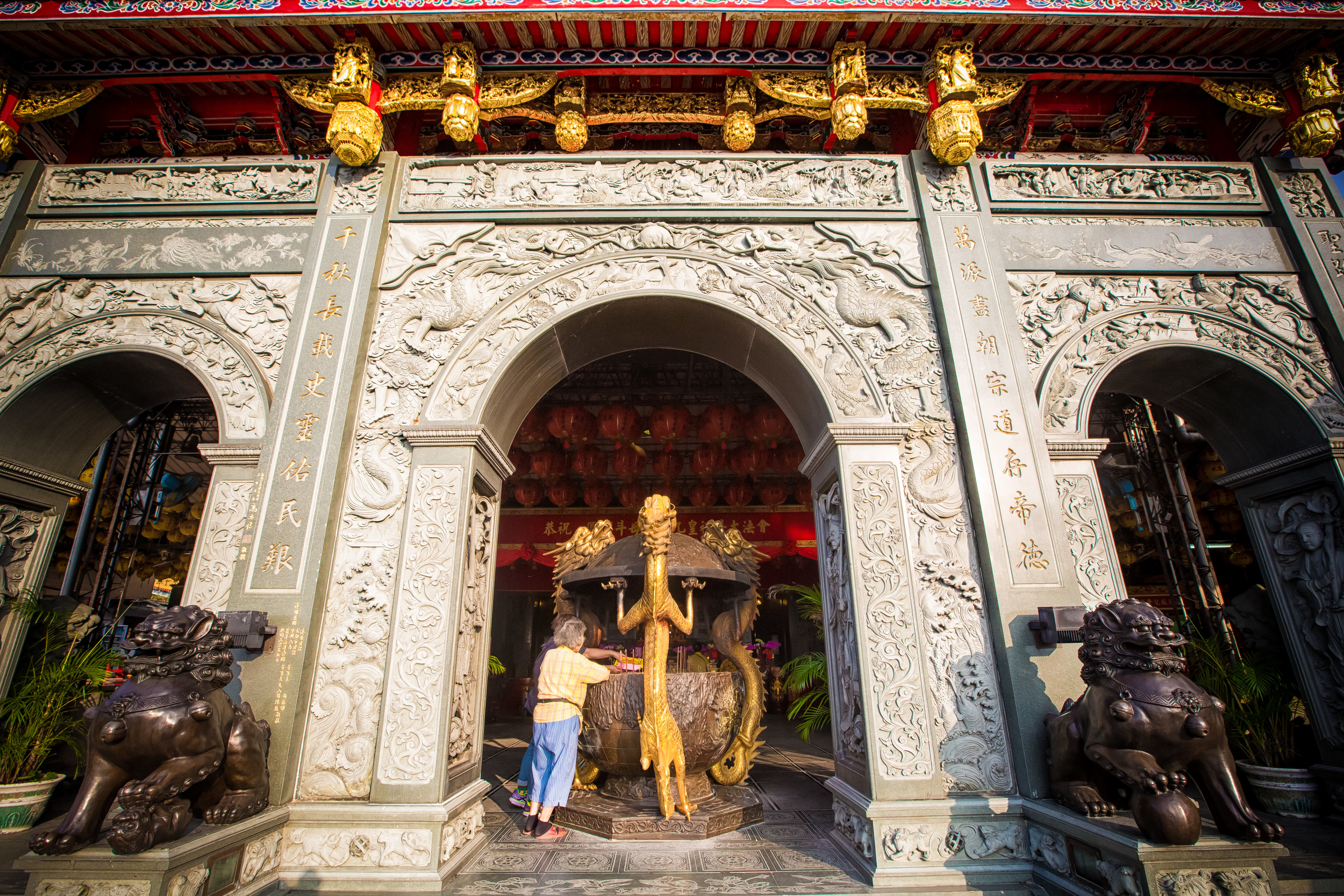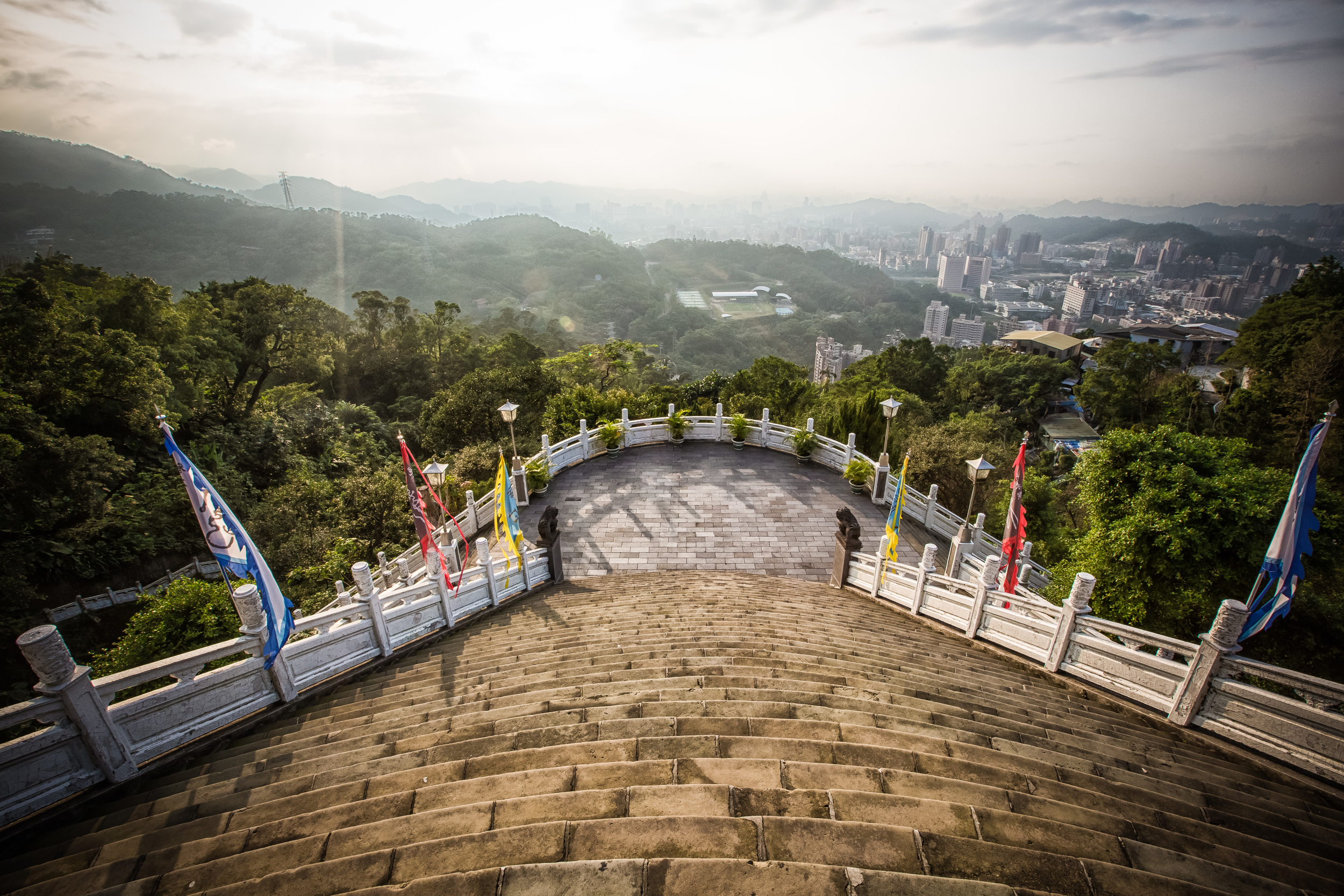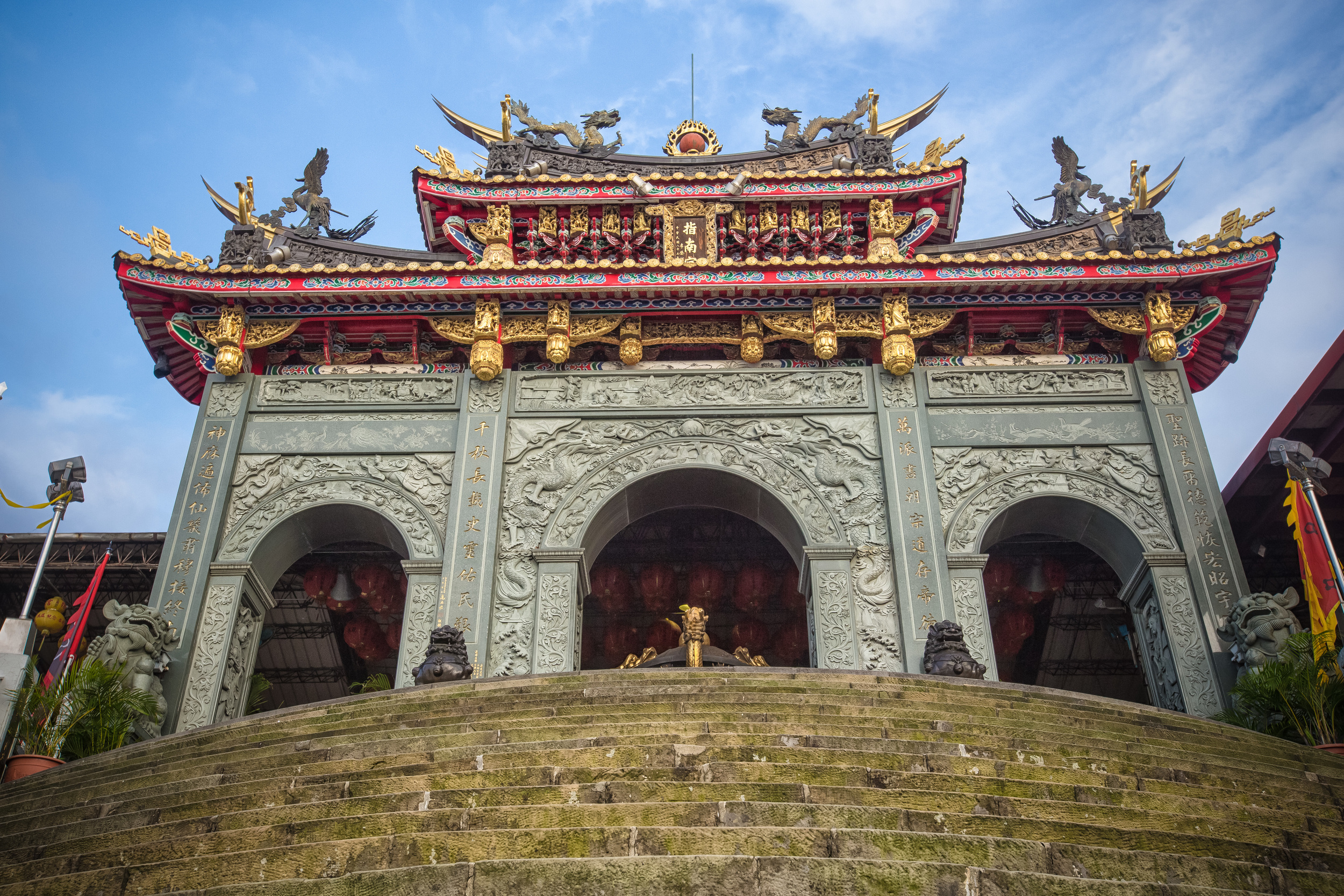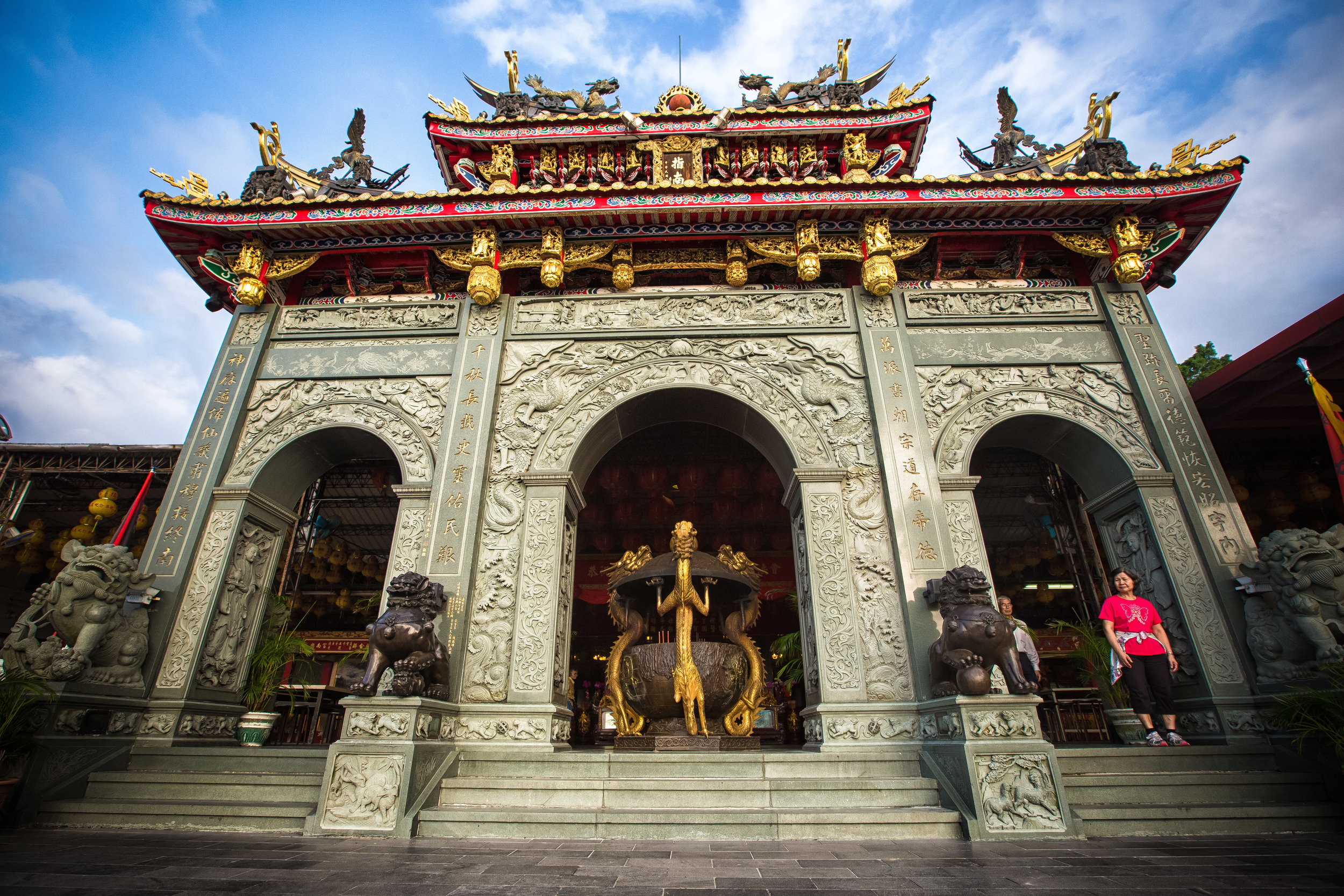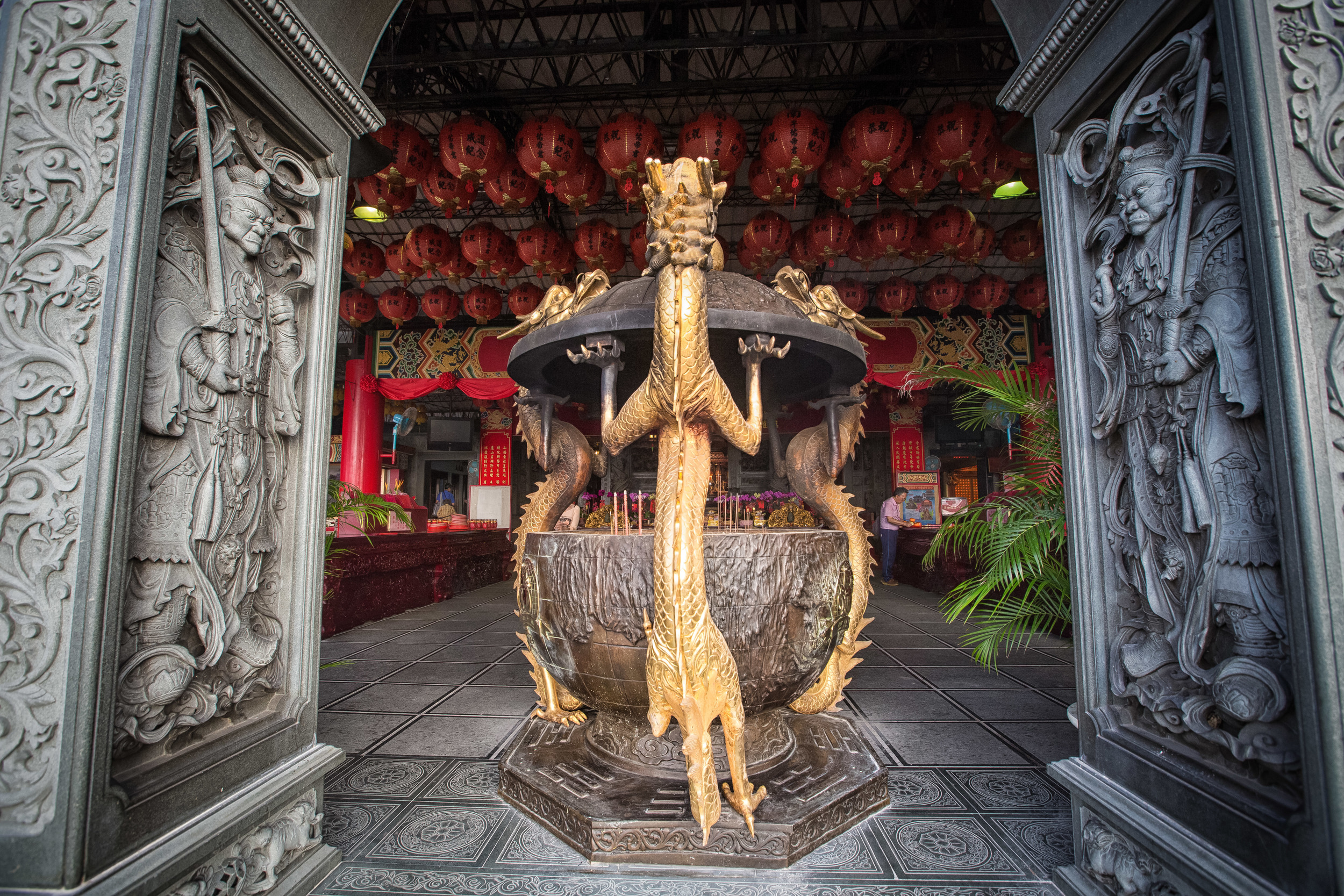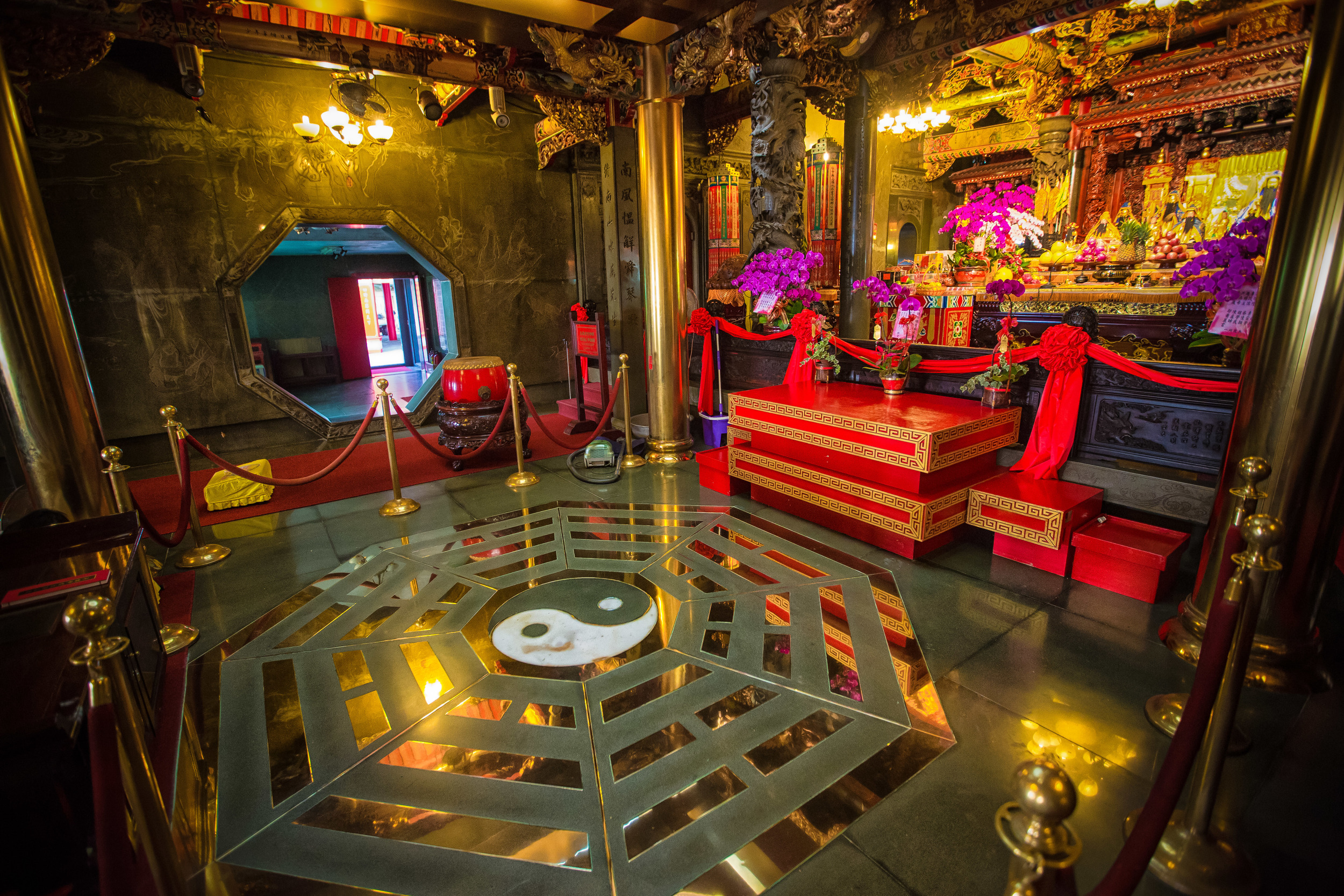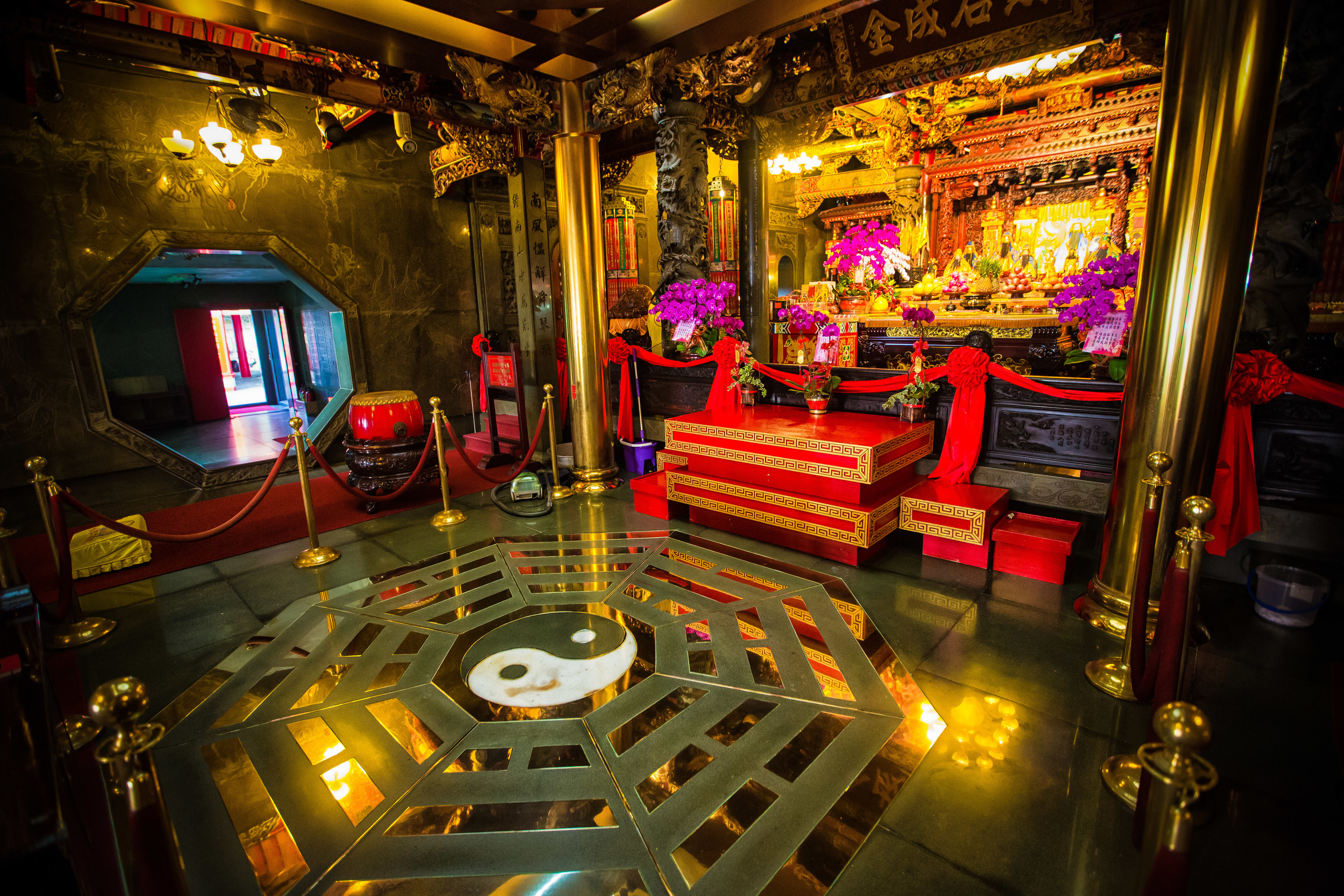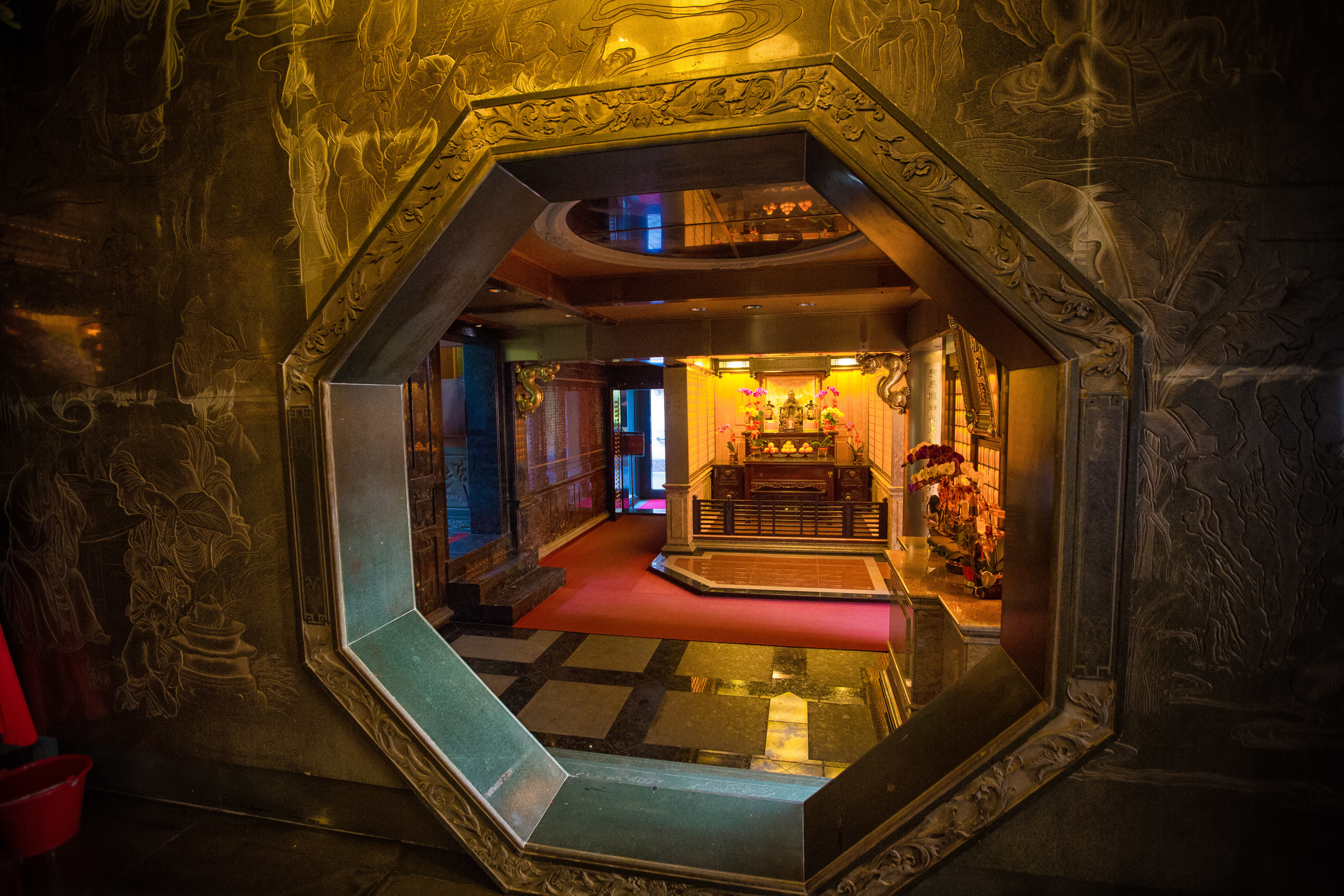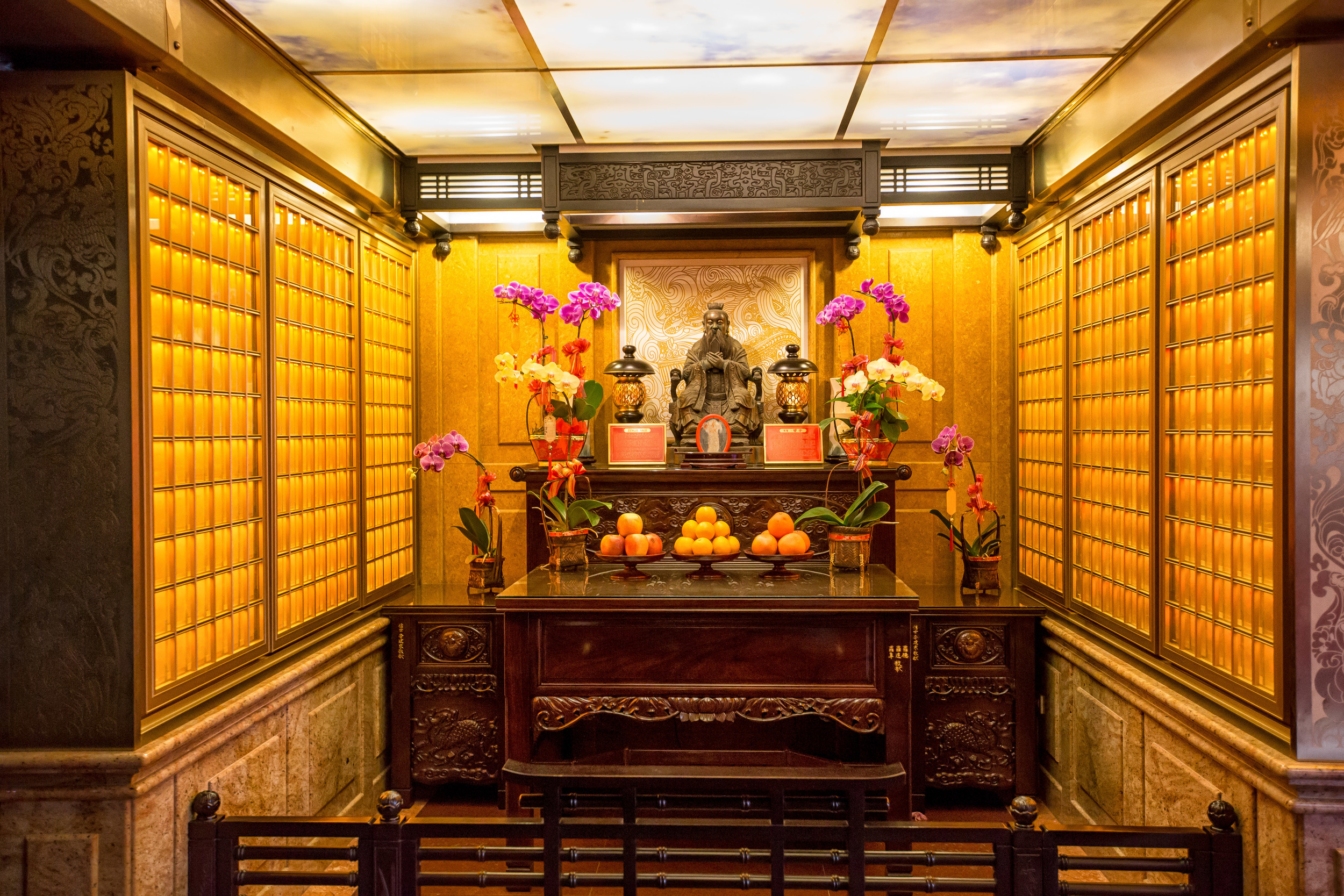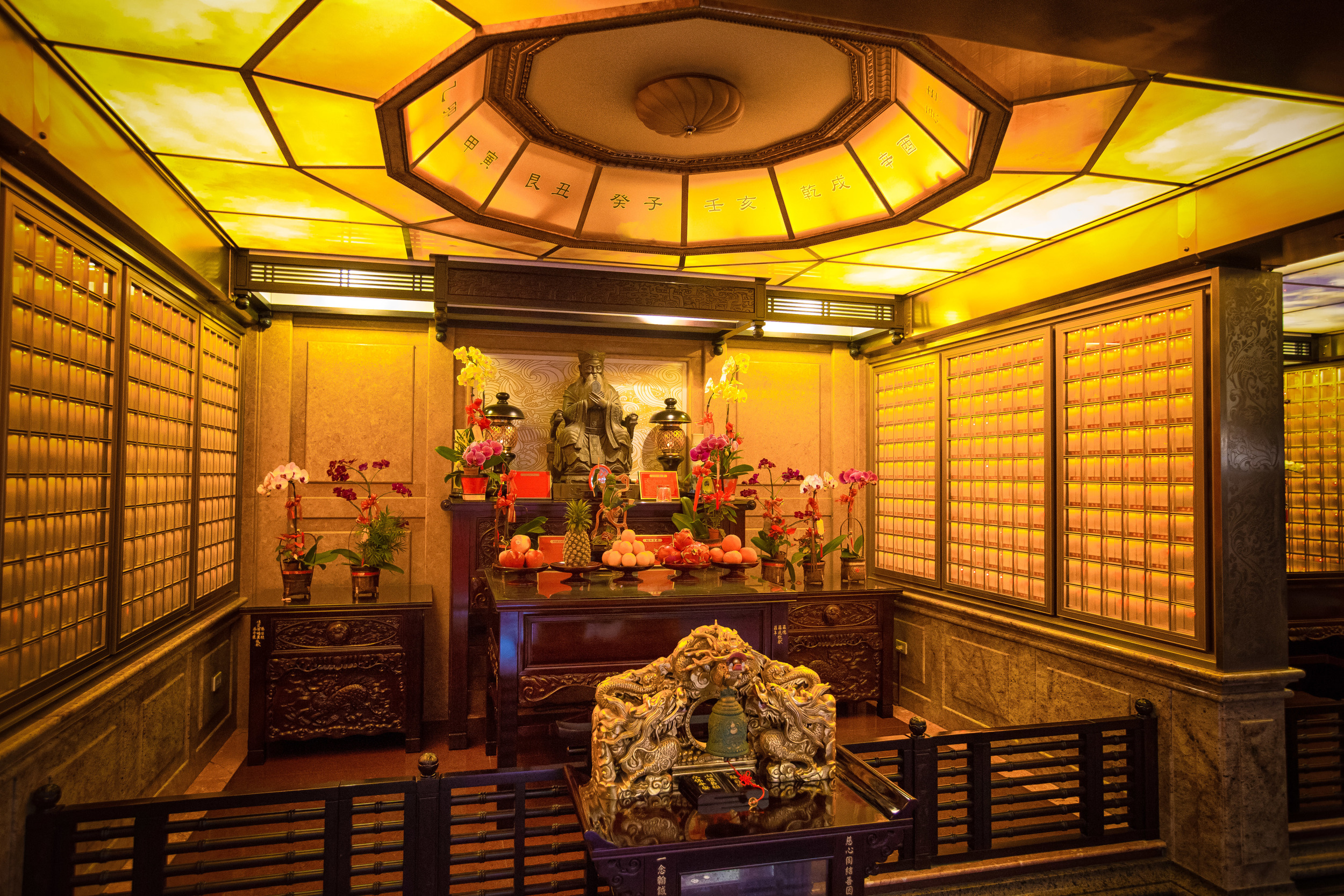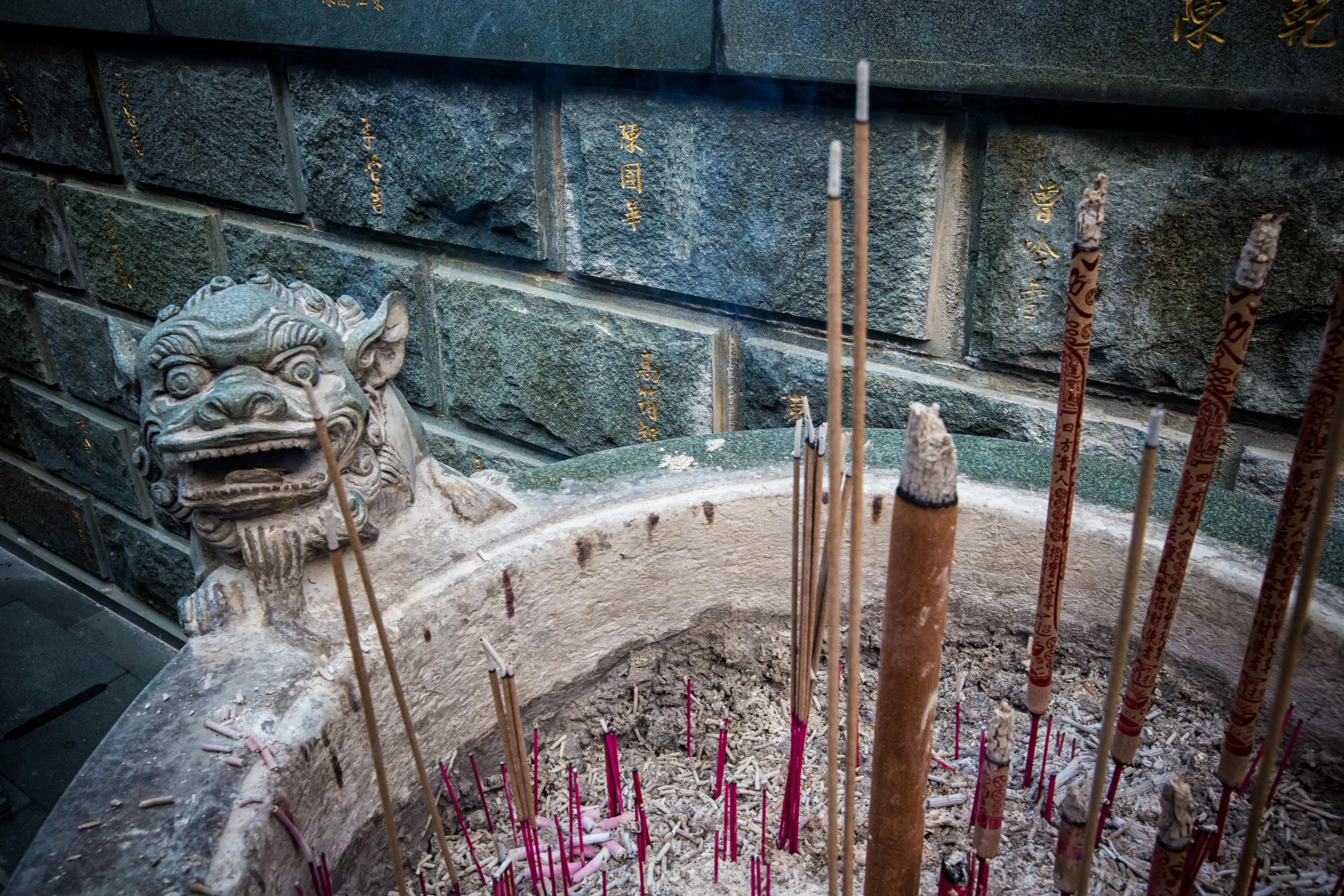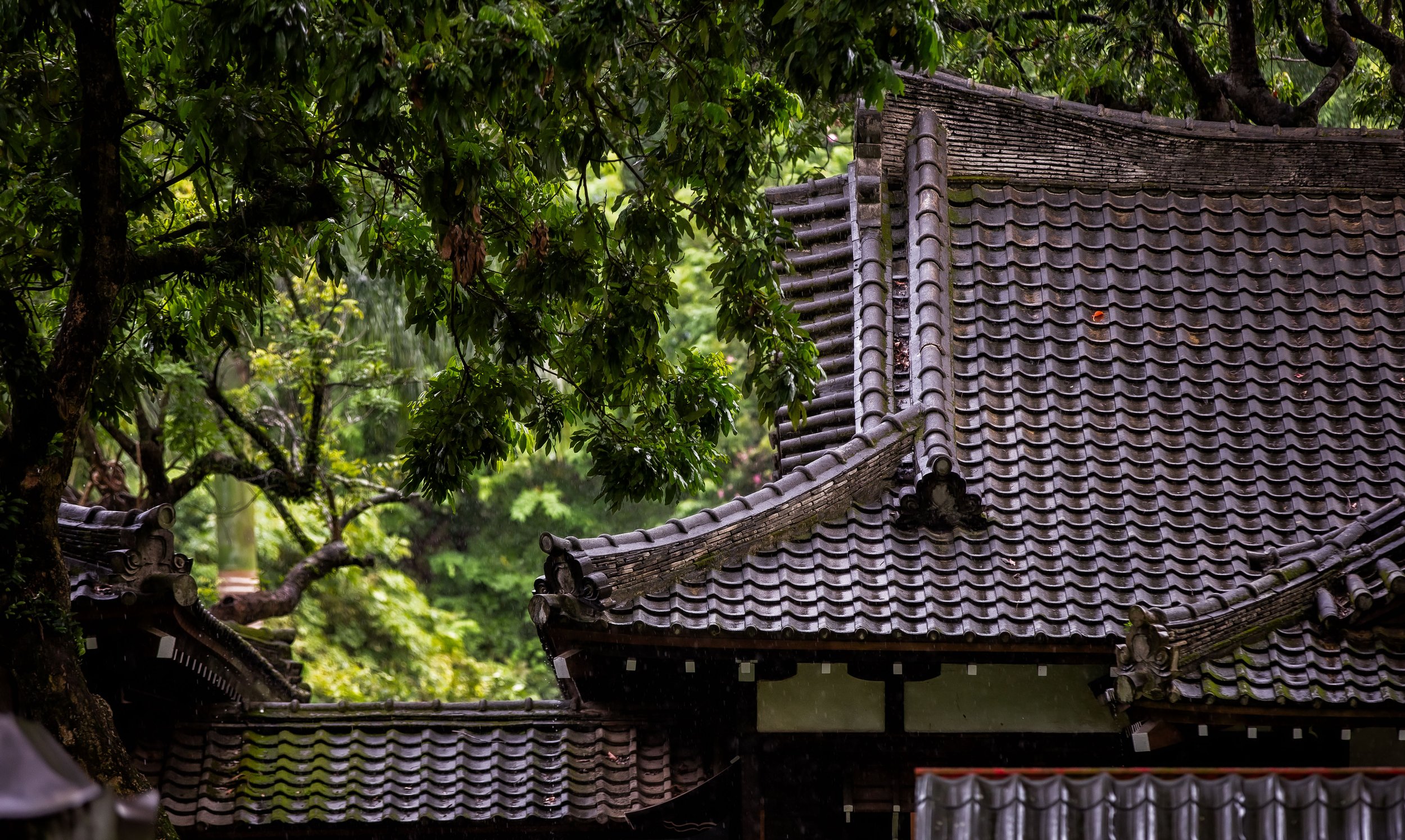Zhinan temple (指南宮), a Taoist temple on the slopes of Houshan (猴山) in Taipei is said to be one of Asia’s 'must-see destinations' due to its long history and because of how important it is for the Taoists of Taiwan. For most of its history, the temple was secluded in the mountains and not easily accessible until recently when the Maokong Gondola project was completed bringing with it loads of tourists and renewed interest in the area!
The temple complex covers a large area of the mountain and has since expanded to having three different buildings. Each building has shrines dedicated to various Taoist gods as well as shrines set up to Buddhas and also Confucius.
Zhinan Temple, like the majority of temples in Taiwan is polytheistic and despite the fact that there are shrines set up to gods from different religions or philosophies all in one building, they all get along quite well and (compared to religions in the west) it's extremely rare to see any sort of religious bickering or problems of that sort which I find quite admirable.
The main deity worshipped in the temple is Lu Dongbin (呂洞賓), one of the eight immortals (八仙) of the Taoist pantheon and a deity that is considered quite important (and is sometimes referred to as the de-facto leader) of the group of immortal sages. Lu was an actual historical figure who lived during the Tang Dynasty (618-907AD) and was both a scholar and a poet. In life, he was renowned for his kindness, compassion and a genuine desire to help educate others and putting them on a path to enlightenment.
Despite all the great things recorded about the historical figure (in the History of the Song - 宋史), he is also known for his character flaws - which are not uncommon for deities within Taoism as the sages are well known for their wisdom and compassion as well as their eccentricities. Lu Dongbin is said to have been a big fan of alcohol and like many other Taoist sages was prone to partaking of wine. He was also quite the ladies man in life and when he became an immortal, his appetite for the fairer sex became even more insatiable.
The reason I mention all of this is because Zhinan temple is well known throughout Taiwan as being somewhat of a 'cursed' place for couples. Local legend has it that young unmarried couples who visit the temple will quickly break up due to a bit of celestial tampering in their love life. It is said that Lu’s sexual prowess is second to none and he easily becomes jealous of young couples who visit his temples, so he does his best to destroy their relationship.
Couples avoid the temple in an attempt to maintain a healthy, stable relationship.
While the temple might be infamous for its powers of destroying young love, it is famous for the long staircase leading up to the temple that has over 1200 steps. Before the gondola was completed, to get to the temple you either had to have a car or take a bus to the area and walk up the steps to get to the temple.
The steps can be a bit steep, but when you get to the top there is a great view of the city below and I imagine a sense of accomplishment for devotees. The long steps leading up the mountain to the temple are somewhat reminiscent of all of the old mountain temples in China and makes the temple attractive to tourists as it gives off the feeling that you're really in Asia while visiting Taipei. I skipped the stairs though and took the gondola and got off at the Zhinan Temple Station (指南宮站) which is the last stop before arriving at Maokong (貓空) and only a short walk to the temple.
Now that I've explained a bit about the temple, I'm going to talk a little bit about my experience, which I have to say wasn't a very favourable one and actually turned me off from probably ever making a return visit.
To start, I should say that I've visited all sorts of temples all around the country and have never had a bad experience at any of them. I always try my best to understand the history of the place, the cultural significance and all of the art and craftsmanship inside them. I'm not religious, but I respect the art and cultural significance of these places and have put quite a bit of effort into educating myself about them and understanding why things are the way they are from design perspectives.
The first odd experience of the day was when I was wandering around checking out murals on the wall. A young woman walked up to me and smiled awkwardly while staring at me. I always feel a little uncomfortable when people stare at me, so I try to ignore them. She wasn't having any of that though, so she asked “你是中國人嗎” (Are you Chinese?) which surprised me. I wasn't speaking Mandarin at the time, nor do I even look slightly Asian. I replied "No" in English to which she replied in English: “Oh, so you're American?” (Canadians get tired of this question) which elicited a friendly smile and another “No” as I walked away to take a picture of something else. She followed me for a few minutes but eventually seemed to get bored of me.
Shortly after that I overheard some chanting and a religious ceremony happening in the main shrine, so I decided to go check it out. I walked into the main shrine room and there were some ladies dressed in robes chanting and occasionally hitting a drum. There were some other tourists from England in the room taking photos while being led by a temple tour guide. I reached for my camera to take a shot and the tour guide almost lunged at me and said “NO PICTURES” which I thought was kind of weird considering I’ve never been told that something was off-limits in a temple before and because the people she was leading around were taking pictures and she seemed to have no problem with them.
After that I walked out of the shrine room and the tour guide decided to end her tour with the English couple and follow me around. I walked into a room behind the main shrine that looked like it was recently completed, very expensive and very touristy. The room was full of beautiful statues of gods who were part of the Chinese zodiac and each one of the statues represents the year of your birth according to the calendar and a ceiling that has lights corresponding to the stars and constellations in a possible attempt to appeal to westerners or people who believe in Astrology.
The tour guide lady followed closely behind me, which I gathered meant that she wasn't impressed with my picture-taking, so I just walked around slowly and admired how odd the room seemed. She eventually approached me and spoke in (unintelligible) English. I replied to her in Chinese, so that she would speak Chinese to me, but she just continued speaking English and I tried to listen, but I really couldn't understand what she was talking about.
From what I made out, she wanted me to place $1200NT ($38 US) in front of the statue which represented the year of my birth and then make a wish. I explained to her that I don't really believe in this type of thing and that $1200NT was way too much to just drop in front of a statue. She replied that constructing that room was expensive and that it was more or less a donation which I found quite ironic considering it was about ‘making a wish’ only a few minutes earlier.
At this point I noticed she was wearing a shirt that said “China Taoism Institute” (中華道教學院) which indicated that the group running the temple would be a little more pushy with the religion stuff, which is something you don't get at other temples. I decided it was time to escape and she seemed quite unimpressed with that, but I wasn't in the mood for a lesson in religion. I later learned that the China Taoism Institute has an unrecognized university program at the temple which offers a bachelor and graduate degree in Taoism if you feel like wasting your time and money.
I walked back through the main shrine room and noticed a couple of devotees praying and repeatedly hitting their head off of the floor. I understand that this kind of thing is a way of showing devotion, but I haven't seen it happen in a while and have a hard time understanding people who inflict self harm for religion.
When I walked out of the temple and was making my way back to the gondola station, I was swarmed by another couple of ladies who wanted me to buy charms and attempted to explain why each of them were significant. All of this left with me thinking that this temple was way too pushy and just wanted my money.
On the gondola on the way back down my mind was racing back and forth while I was enjoying the scenery. Whenever I visit temples, I always meet nice people - They're always kind and smile or try to use whatever English they know to make me feel welcome. I always enjoy that part of visiting temples. There aren't many places in the world where you could walk into a place of worship and not be hassled by people who want to convert you. What I've observed here in Taiwan is that people aren't concerned with this kind of thing and are much more concerned with being compassionate and sharing their culture with people who visit the country.
I came to the conclusion (and I'd love to hear any other opinions and experiences) at this temple that they were likely pushy with the religion stuff, or trying to elicit donations from tourists because tourism has become a source of revenue since the Gondola opened. This is why they have tour guides who speak several different languages and have them waiting around for prospective donations. When this kind of thing happens, it makes the experience seem more like I'm visiting a temple in South East Asia rather than one in Taiwan.
I would hope that not everyone's experience at Zhinan temple is like the one I had and if you are reading this blog, I hope it won't scare you away from visiting - unless you're planning to visit with your girlfriend or boyfriend. It's a beautiful temple and a nice place to visit. The walk up the mountain is supposed to be amazing and the views are great. I think that you might just want to be a little careful who you walk to while you're there!
Zhinan Temple: Website (English/Chinese/Japanese/Korean)
Galley / Flickr (High Res Shots)

